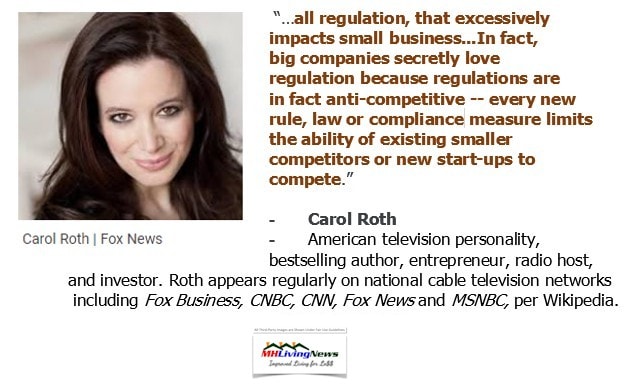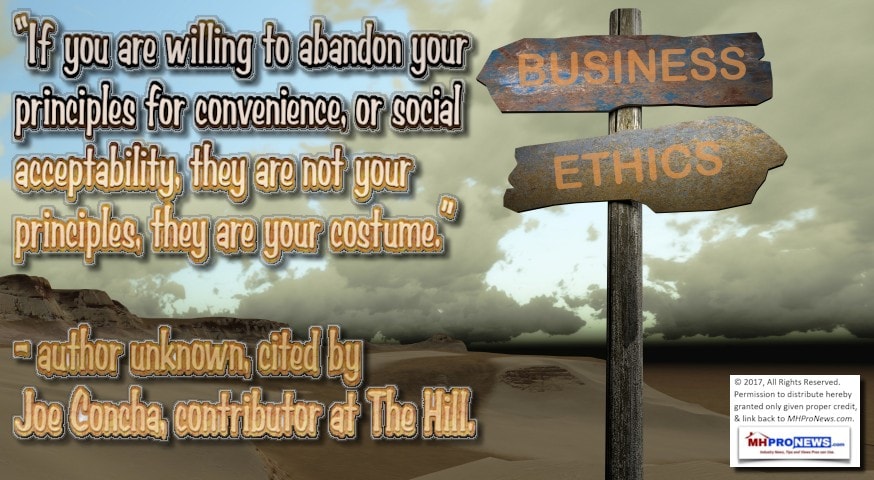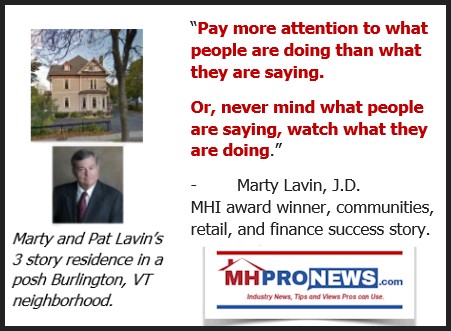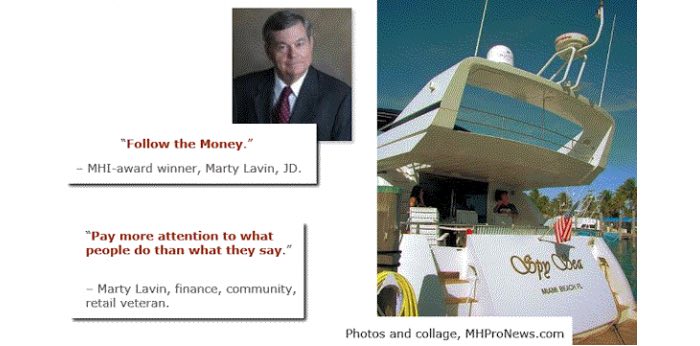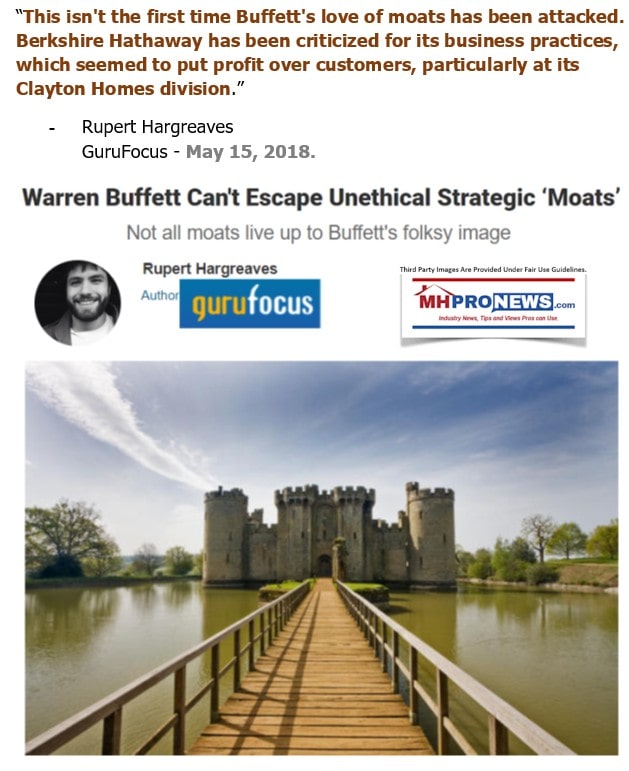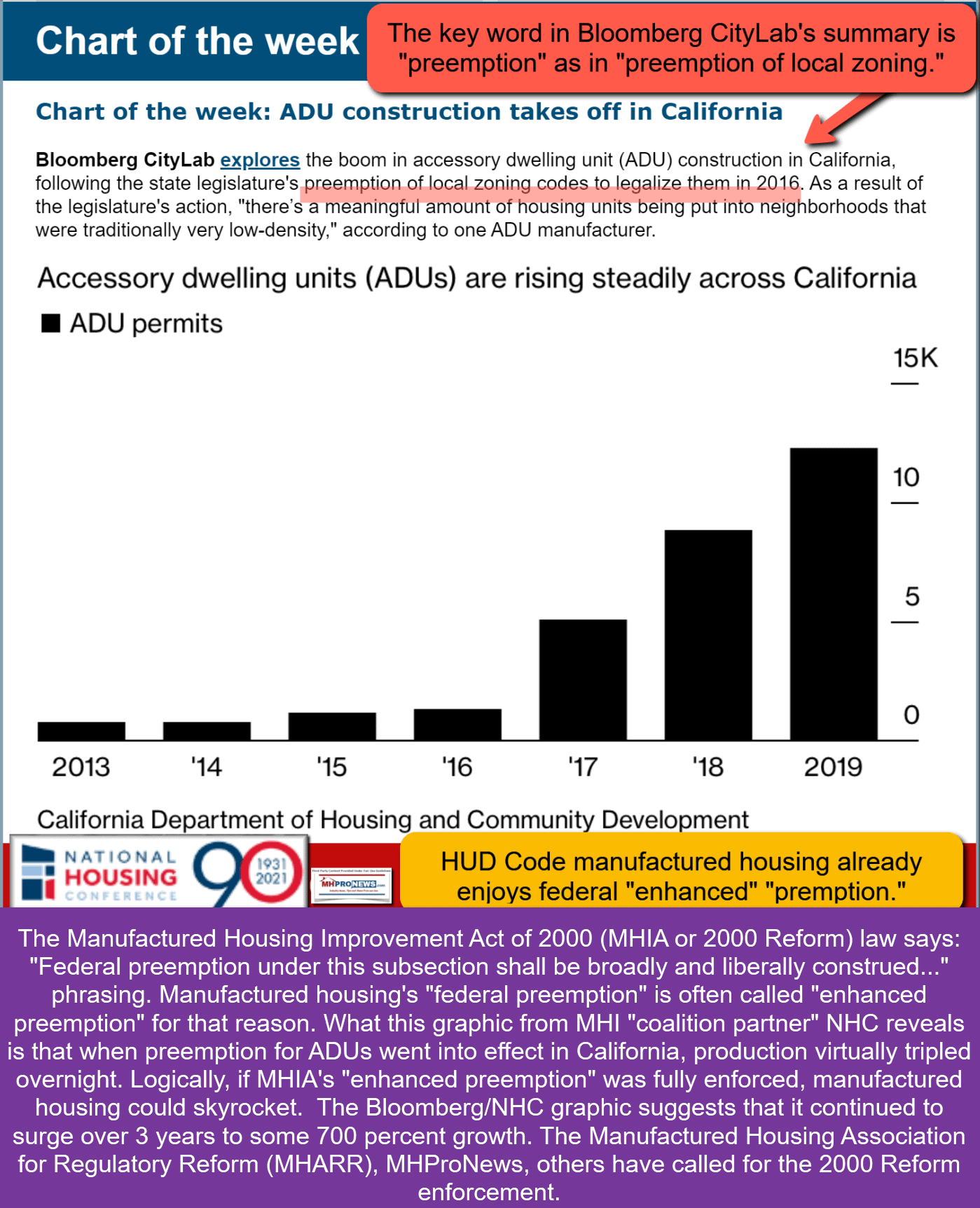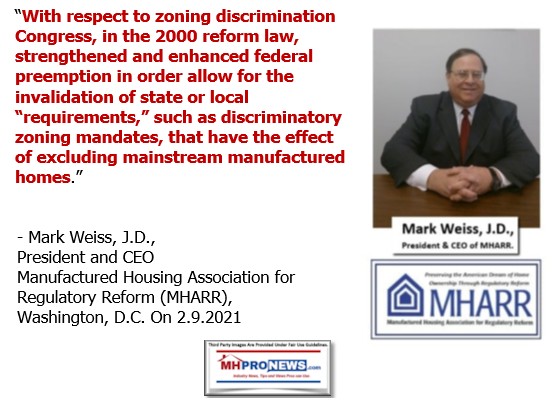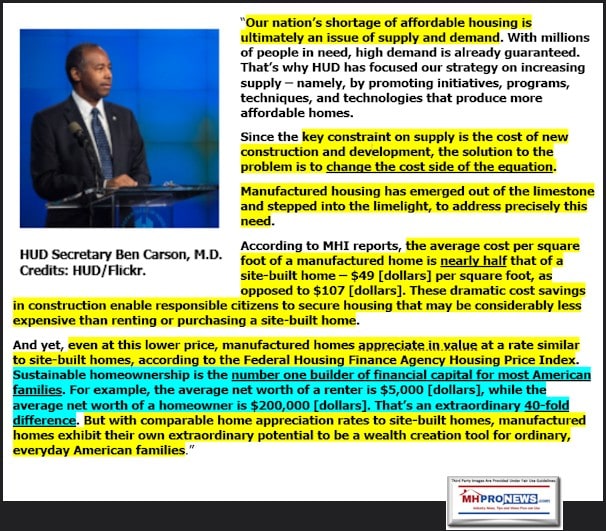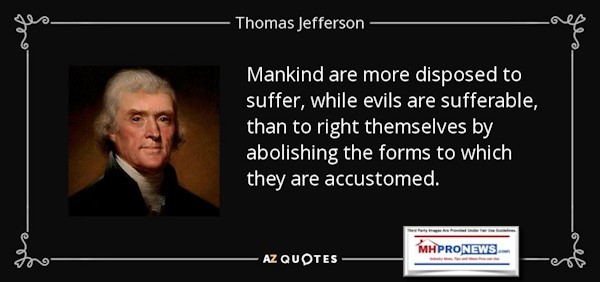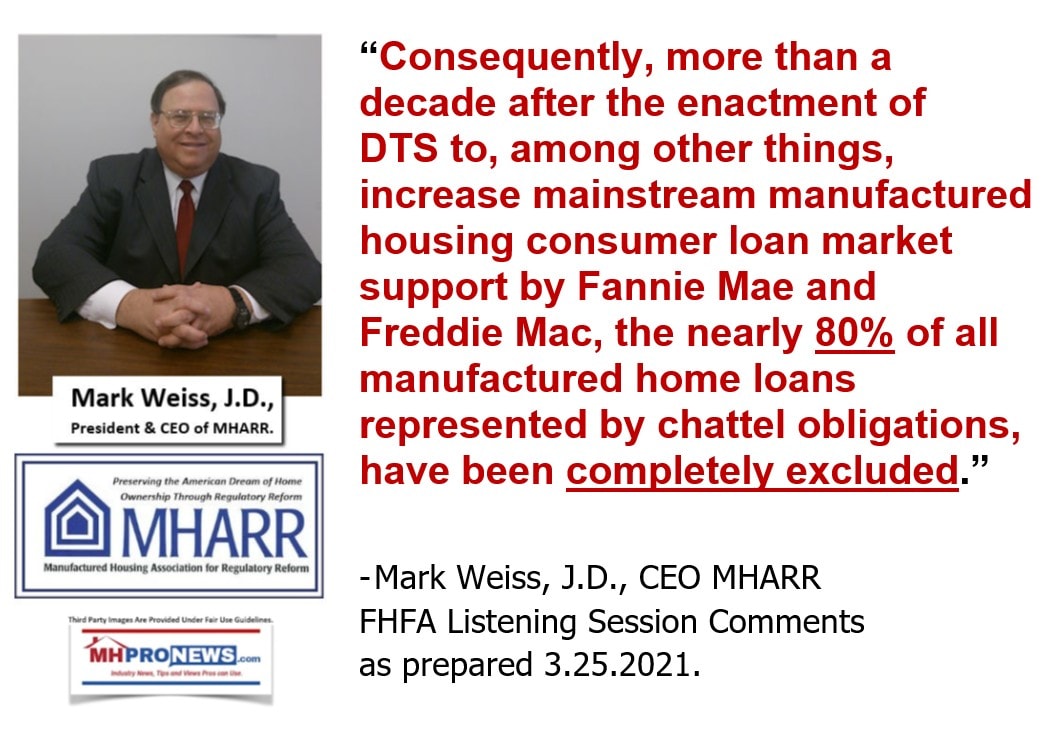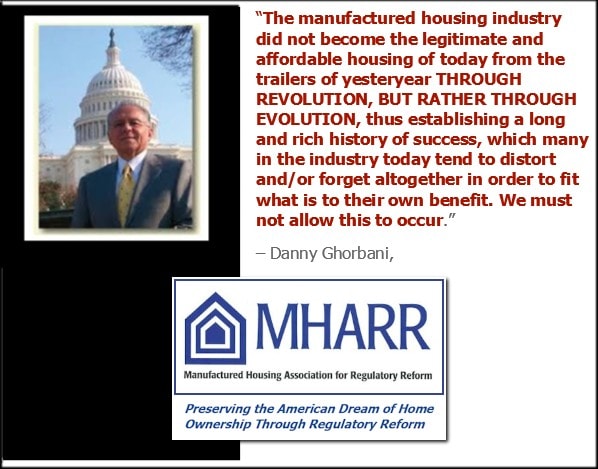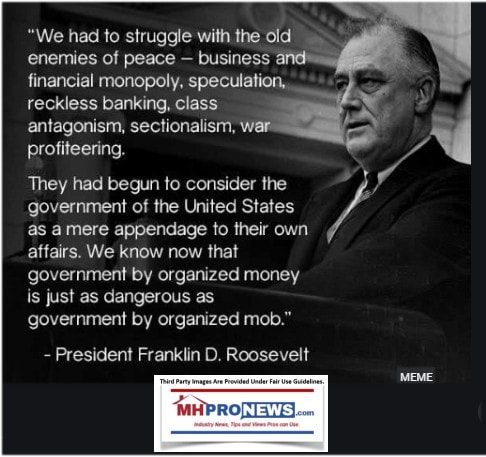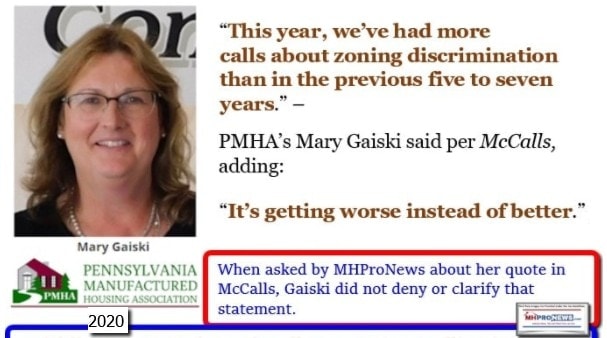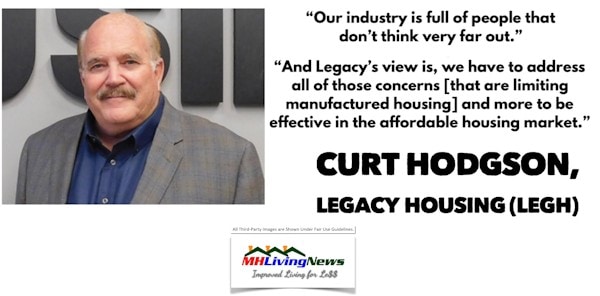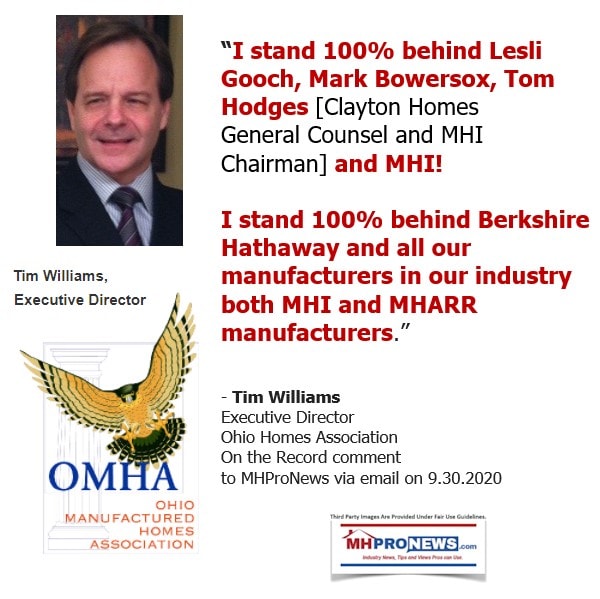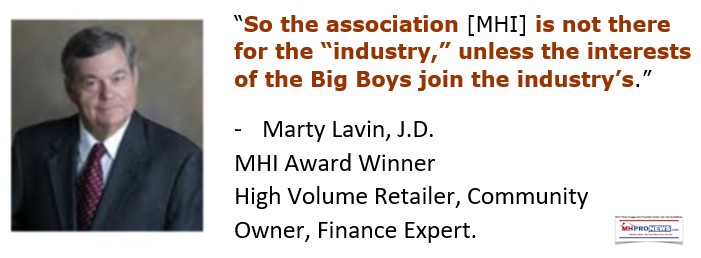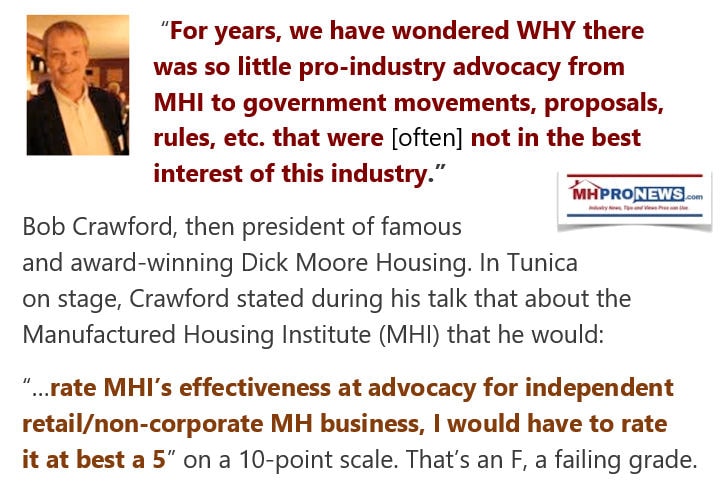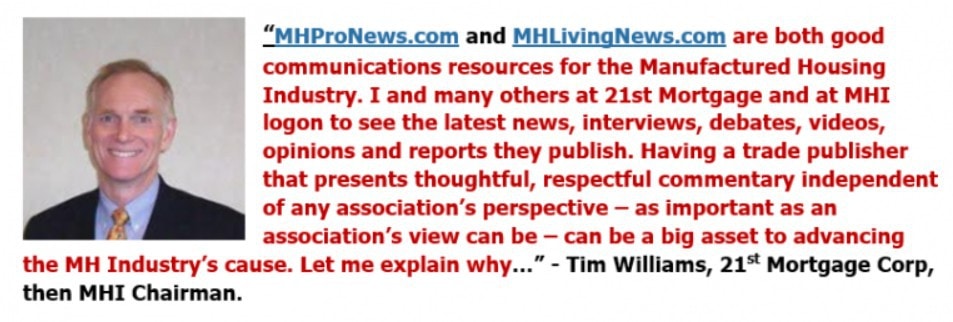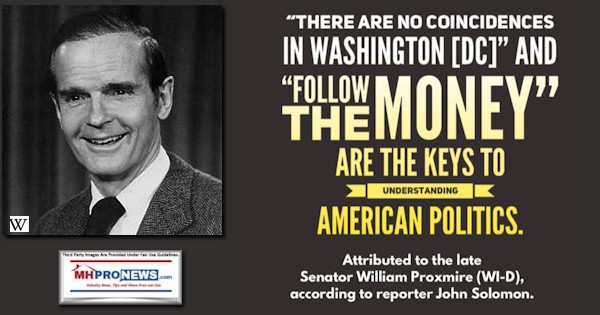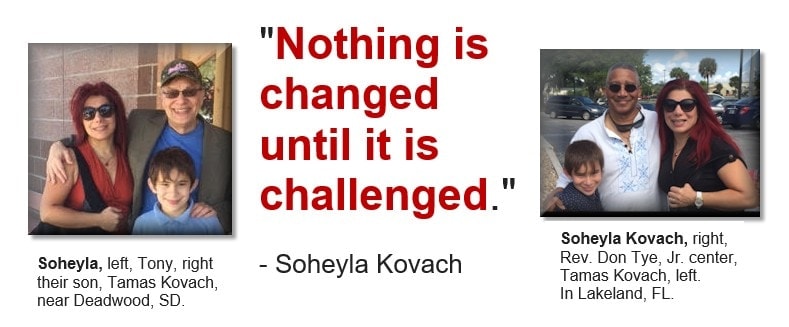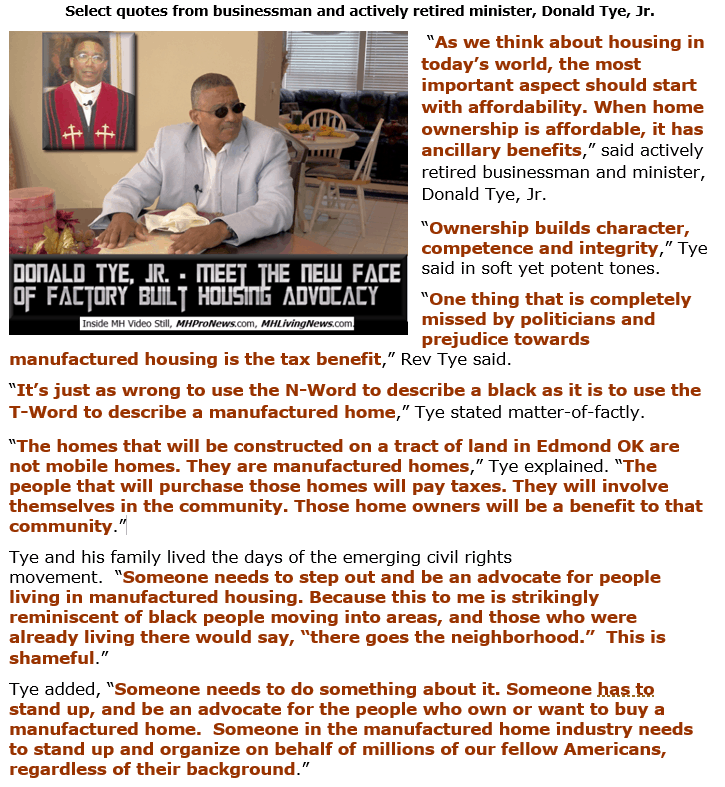The high cost to our nation and its citizens caused by NIMBYite thinking – ‘Not in My Back Yard’ or NIMBY – has been well documented by researchers such as Chang Tai Hsieh and Enrico Moretti. In brief, Hsieh and Moretti are nonpartisan National Bureau of Economic Research (NBER) experts whose evidence makes the case that the lack of affordable housing near where it is needed circa 2015-2017 was costing our nation nearly $2 trillion dollars annually due to lost productivity and other economic drags. Those who have said ‘Yes in My Back Yard’ (YIMBY) should be referring to their research for support. Similarly, a sound understanding of the multifamily housing vs. manufactured homes debate may be successfully addressed, overcome, and resolved due to bipartisan research. Seminal research by a bipartisan commission in Minnesota established the stark factual differences in costs between building new multifamily housing projects vs. developing new modern manufactured home communities. That MN working group also determined that rehabilitation of multifamily housing construction was far more costly than updating a manufactured home community. In one initial paragraph, much of the rationale needed to break through NIMBYism is captured. After all, the alternative to tents, homelessness, crime, and quality of life issues that sprung up in Seattle, Los Angeles and other cities in recent years could well be summed up as the choice between making more manufactured home ownership available or having more people tragically living in cars, canvas covers, and cardboard boxes.


But to bring this obvious and pragmatic solution of the American affordable housing crisis to life in a potentially widely acceptable manner, someone must first look at authentic information objectively. That includes what a manufactured home is an is not.
There are several mistaken fears about manufactured homes. One is that they blow away at the first wind. If that were true, why are there relatively few deaths every year? There are dozens of times more deaths in bathtubs of all kinds of housing every year than occur every year in a mobile or HUD Code manufactured home deaths attributed to tornadoes, per federal data (see video and report).
Another debunked fear is that manufactured homes depreciate or hurt the value of nearby conventional housing. Obama-Biden Administration era research commissioned by HUD debunked that urban myth over a decade ago.
Another misconception is that manufactured homes are trailer houses or mobile homes that look like old tin cans on wheels. What once was is hardly the case now.
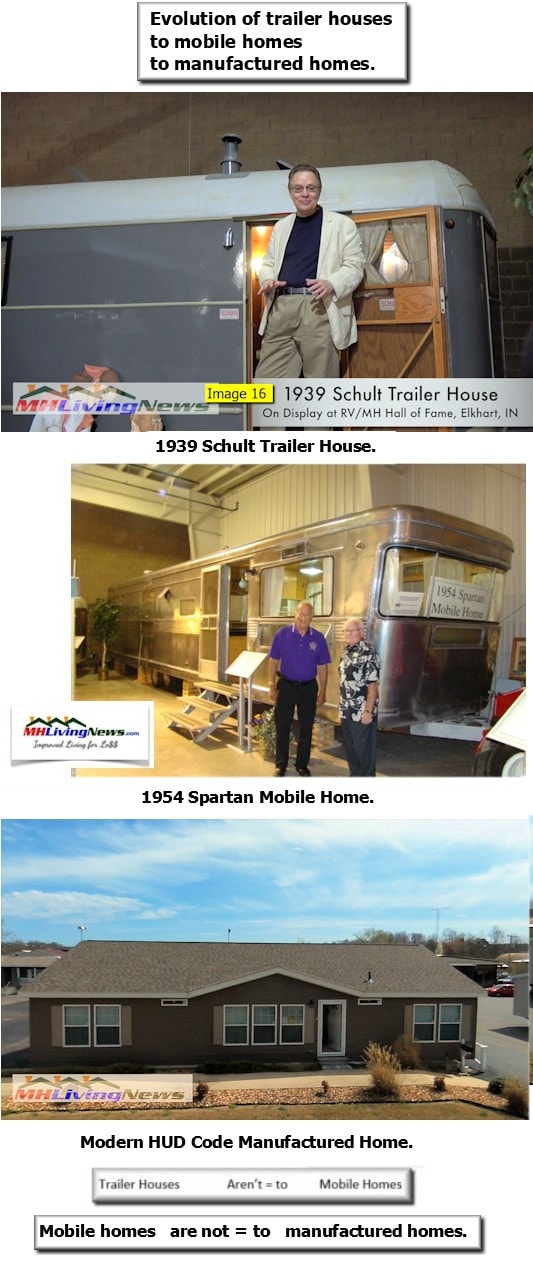
There are good reasons the manufactured home industry’s disciplined advocates for growth should make a clear distinction between the trailer houses and mobile homes of the past and the manufactured homes of recent years and today. That discipline must include proper terminology. Elements of support to point to include manufactured home advocate and factory-built home owner Rev. Donald Tye Jr.’s penetrating insights. The reasons to revive Steve Duke, J.D., and his pithy quip – both of which follow – are important and timely in this discussion too.
Trulia did an infographic that summarize why the fear over affordable housing being near single-family housing is outdated and factually inaccurate.
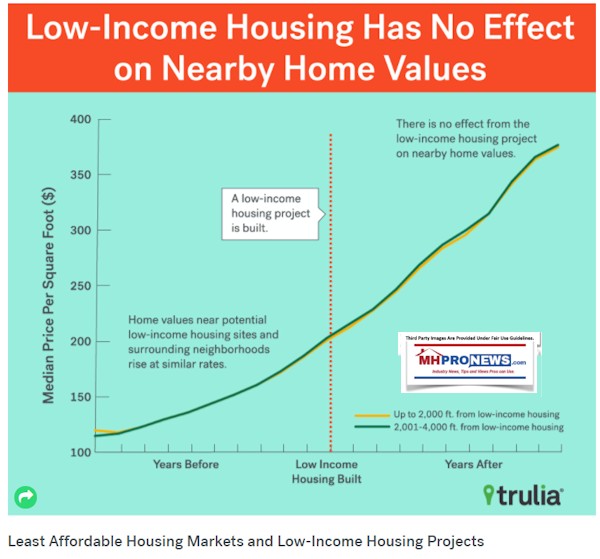
Lawrence Yun, Ph.D., the chief economist for the National Association of Realtors (NAR) made the plain and obvious statement a few years ago that only by building more homes can the upward pressure on housing costs be alleviated. Logically, everything else is mistaken or a smokescreen. Yun said that builders have to get busy. But Yun did something else that was no less important than what follows his memorable quote.
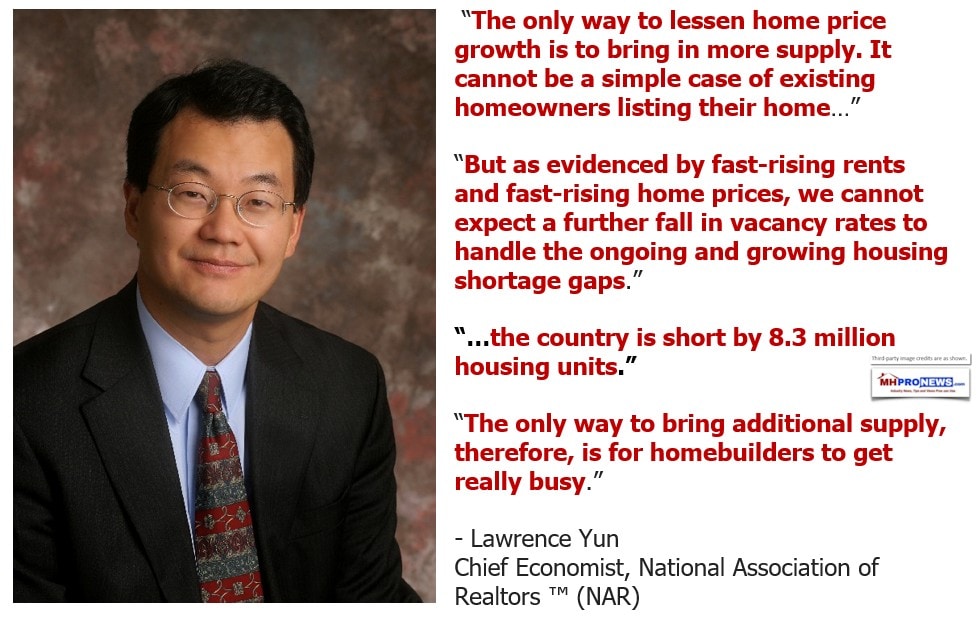
Yun encouraged the NAR’s Scholastica “Gay” Coronation, a Certified Business Economist (CBE) to research the “Market for Manufactured Housing.” Cororaton’s work was seminal too. After all, only factory-home building could occur rapidly enough to close the millions of units needed to fill the housing gap, which was the apparent reasoning by Yun. She stated in the phrase shown how fears over windstorms were not supported by the evidence. Other facts she unearthed should have put her in the RV MH Hall of Fame, and will follow this quote.
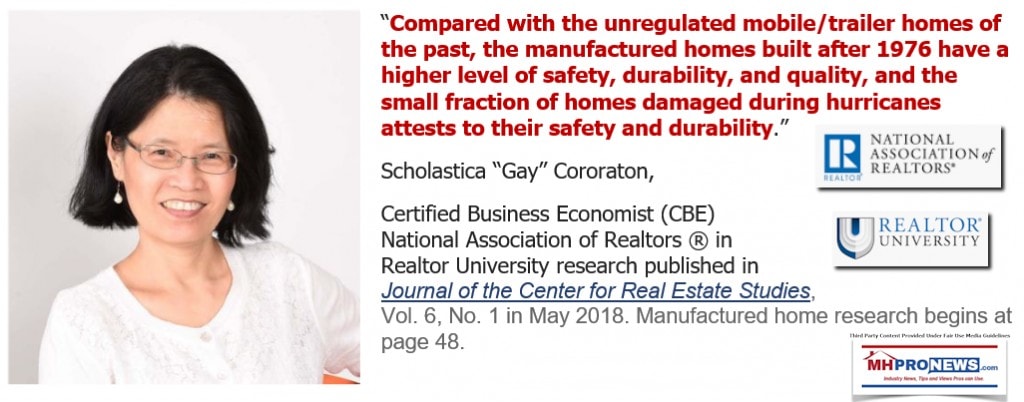
Cororaton’s expert, third-party research made it clear that for millions, manufactured homes are more affordable than renting.
Not only did no one publicly dispute her, but prior research by the Government Accountability Office (GAO) – citing Fannie Mae research – indicated much the same.
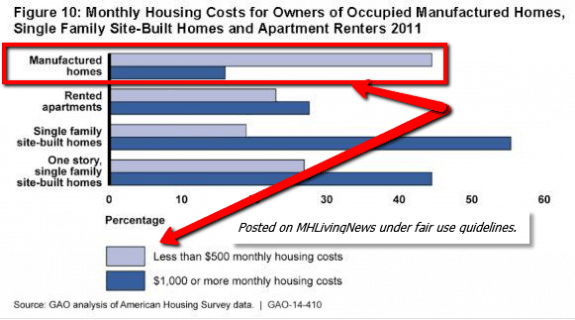
Despite the impressive data and insights into the quality, durability, and appeal of modern manufactured homes, Cororaton’s research also pointed out that the trends in production and share of single family housing had nevertheless declined. Why?
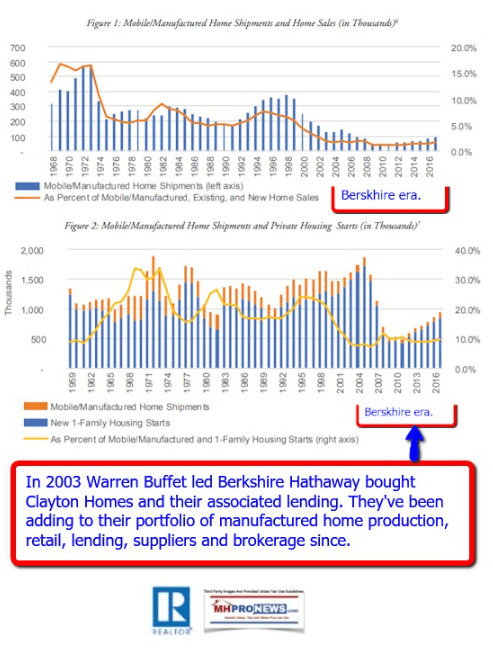
Given the facts already presented and linked, how can someone rationally explain the lack of a concentrated push of such important and useful third-party research by the industry’s largest firms and several trade groups will be examined later. But suffice it for to say for now, that their failure to properly promote such research explains in part why the manufactured home industry is struggling, while conventional housing is soaring.

That vexing lack of popularizing such information, illustrations, and facts also explains why homelessness and housing insecurity have surged.
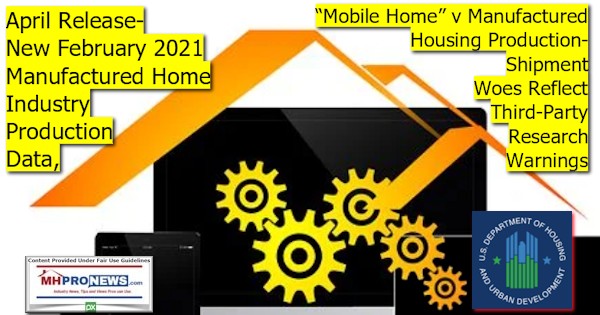
As the Rev. Tye said, there are an array of benefits to more affordable home ownership vs. what he called warehousing people in large projects. Tye decried the wasteful Cabrini Green style of housing projects that ended up dilapidated, crime ridden, and which largely fell into disuse. That one and others ultimately had to be torn down.
The rubble of the ruinous lessons of Cabrini Green figuratively stands as a sobering reminder of what does not work. Untold billions have been wasted in this sort of fashion.
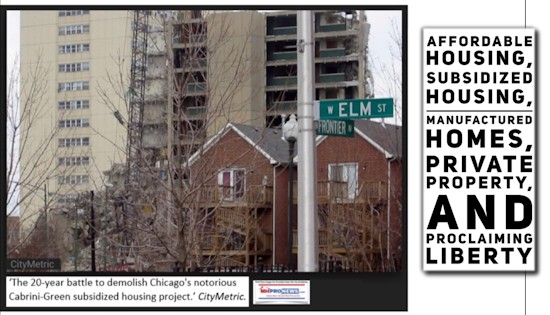
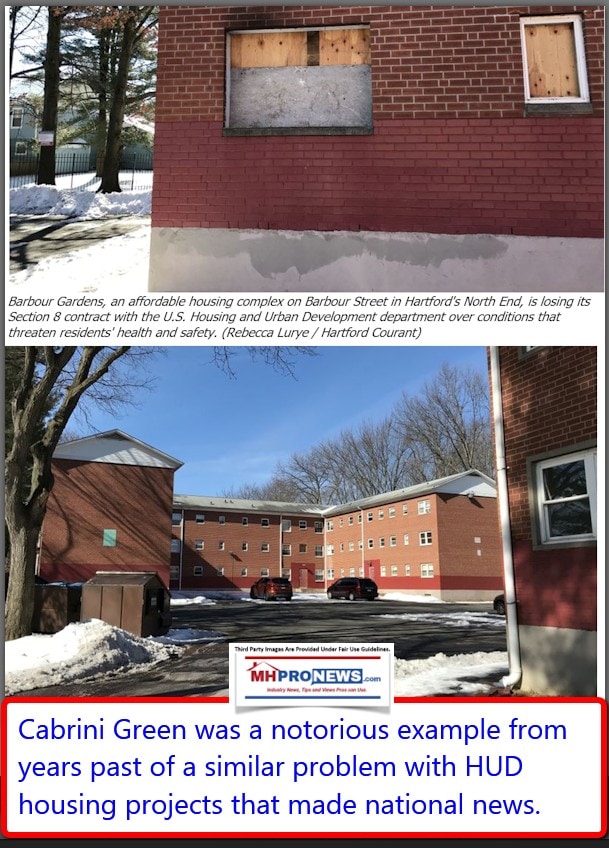
What does work, said Tye, is giving people an opportunity to own their own affordable home. Home ownership builds character, responsibility, and supports the local tax base, he argued. It is a path to household and possibly multigenerational wealth building. His specific suggestion was manufactured home ownership.
Tye pointed to the benefits in he and his family’s lives enjoyed that flowed from affordable home ownership. His children had opportunities that others did not. As a small businessman, he also understood the benefits that ‘building a business’ successful can mean for individuals, households, and families.
J.D. Harper with the Arkansas Manufactured Housing Association (AMHA) concurred with Tye’s premise and arguments. Harper said Tye’s thinking reminded him of a black legislator that said that much of what is occurring in America smacks of economic racism.
When Tye’s contentions, personal success, and logic are examined in the light of the so-called War on Poverty and national home ownership trends, several things come to light.
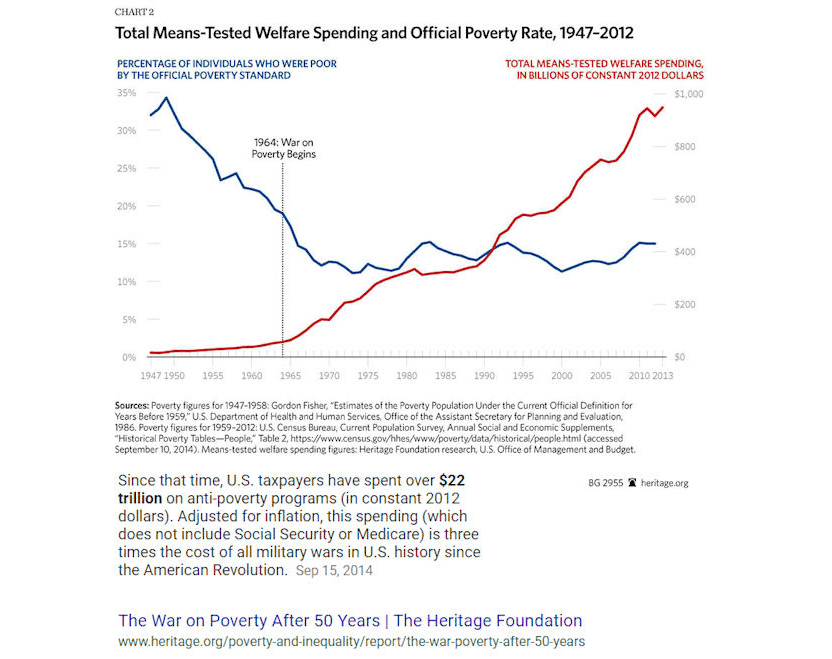
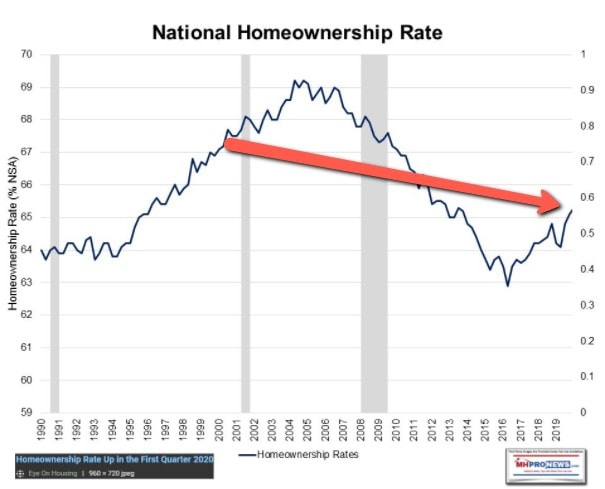
It is irrefutable – based upon the evidence and common sense – that during Democratic and Republican administrations alike the so-called poverty programs – which may have yielded some individual successes – nevertheless failed to provide the overall economic benefits to minorities, and others among the working poor, lower, and lower-middle calls that its adherents and proponents claimed.
Additionally, those public programs are based upon a series of arguably flawed predicates or ‘foundations.’ Like Cabrini Green, while it might look impressive at first, over time the cracks in the underpinnings of the structure are revealed.
To illustrate the point made by Tye and Harper, is the age old dictum that you can give a man a fish and feed him for a day. Teach a man to fish, and you feed him for a lifetime. As Tye said, there are social, economic, and other wholistic benefits to affordable and sustainable homeownership. By contrast, ‘warehousing’ people leads to various additions, unproductive distractions, crime, a life of poverty and much avoidable sadness. The rationale in favor of Tye’s, Harper’s, Yun’s, and Cororaton’s thinking should be evident. They are hardly alone in such thoughts.
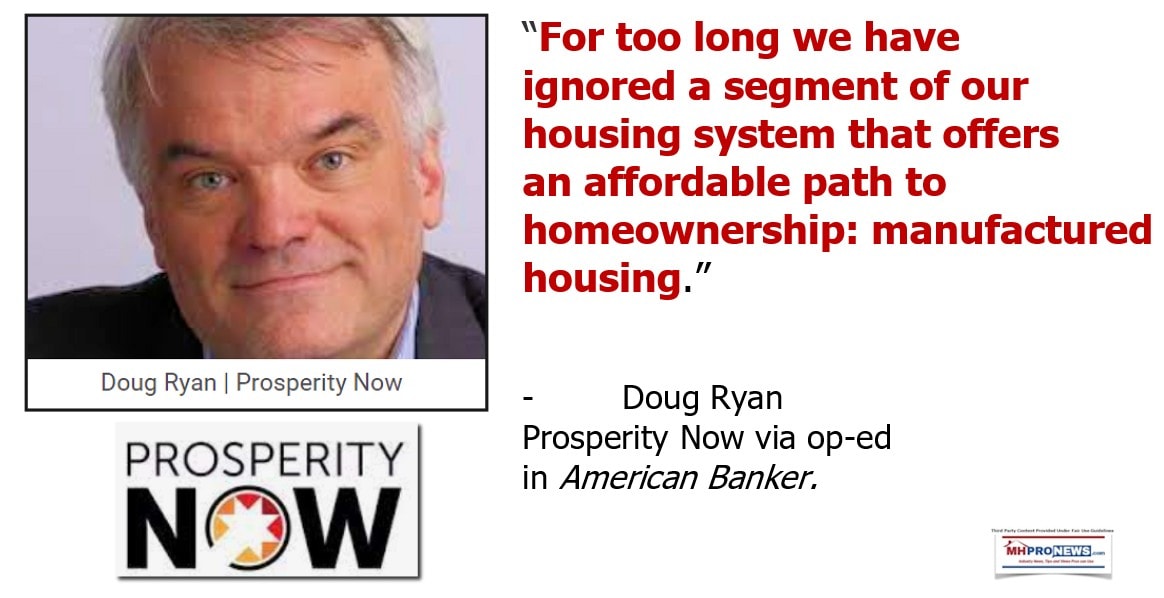
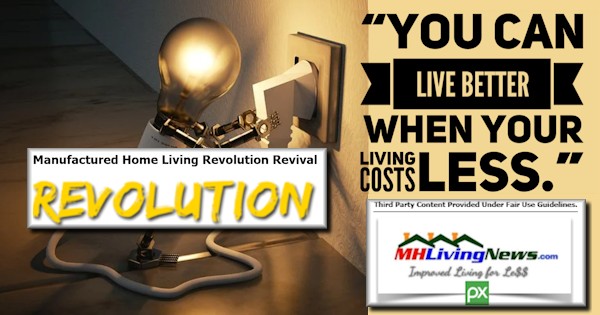
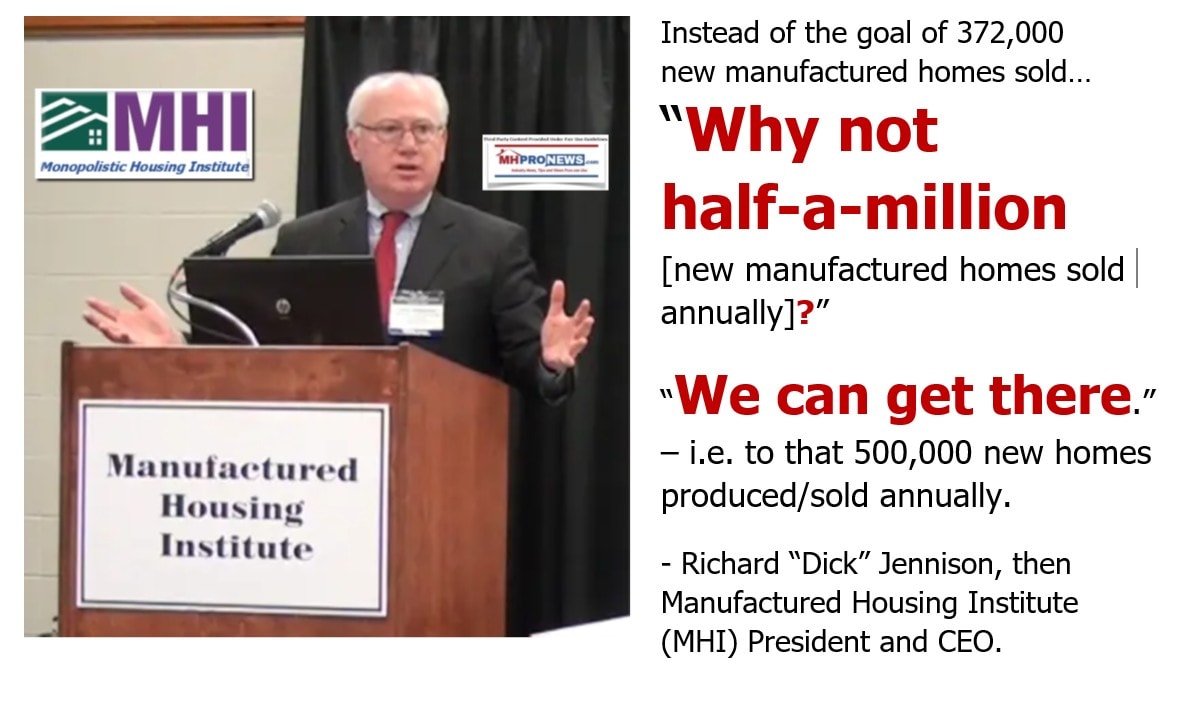

The video below includes views of modern HUD Code manufactured homes.
But the video also has an interview with a pair of lenders who explain
how pleased they are to make such home loans.
It is time to end the decades of failed social experiments that arguably racist President Lyndon Banes Johnson (D) launched and that others, for whatever reasons, continued.
It is in that light that the studies, though they self-admittedly state it is incomplete, conducted by Minneapolis Federal Reserve researcher James A. Schmitz and his colleagues produced sheds added and useful insights. Schmitz and company believe that HUD – in collusion with builders – have deliberately undermined the opportunities that affordable manufactured housing produces.
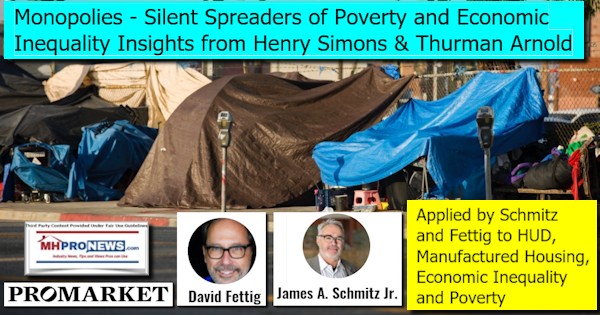
That in turn, Schmitz and company say, are part of what they refer to as a pattern of “sabotage monopoly” outcomes. In their research into manufactured housing, as well as other segments of the economy, they point to the stealthy mode that monopolists can cause grave economic and thus social harm while covering their tracks.
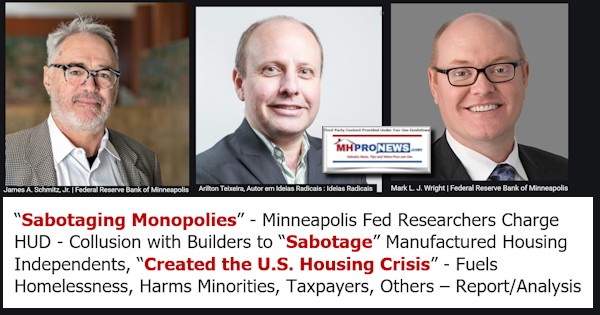
It is unlikely that Schmitz and his colleagues knew about the allegations made by the former administrator of the Office of Manufactured Housing Programs, Bill Matchneer, J.D. Because Matchneer’s public statement would support their contention.
By accident or design, their contention about HUD also happens to fit the broader thesis of those who say that much of the federal government is in the grip of what other researchers have called the Iron Triangle. That term means the de facto collusion between regulators, private interests, and lawmakers who should be exercising objective oversight over various programs. But instead, they are taking money from those same private interests that work in concert with regulators and lawmakers.
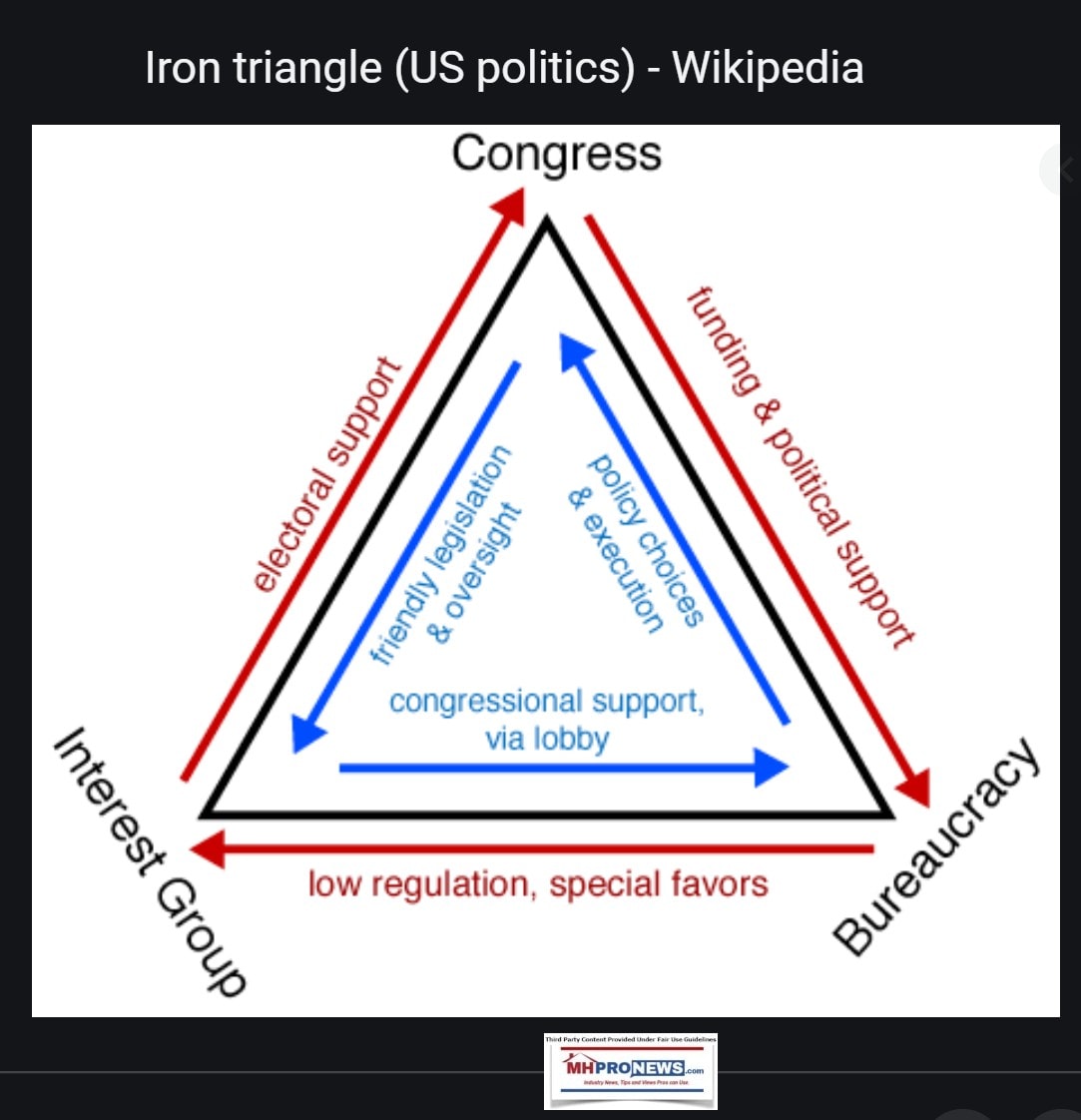
NGOs and the Poverty Industry
Not to say that there aren’t other points – such as education, media, tech, or the vital influence of faith based principles on this discussion – that should each be soberly considered. Of course, there are other factors. But for now, one more important piece of this broad and puzzling decades of painful patterns should be considered. It is the problem of NGOs. “A non-governmental organization (NGO) is a non-profit group that functions independently of any government. NGOs, sometimes called civil societies,” says Investopedia.

The groundbreaking and award-winning documentary Poverty Inc shed critical light on the trap that poverty programs, including governmental and those operated by some nonprofits, creates. The quotes above and below are from that docu-drama.

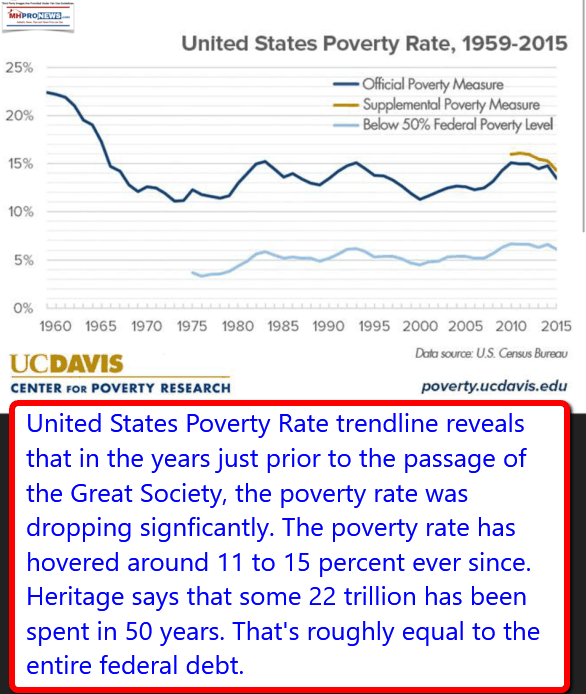
Now, such vexing facts just happens to fit what former California Governor Jerry Brown (D) said was occurring in American society in a once-obscure and startlingly frank interview that MHProNews has periodically referenced.
Brown made a series of declarations that shed keen while troubling light on these issues.
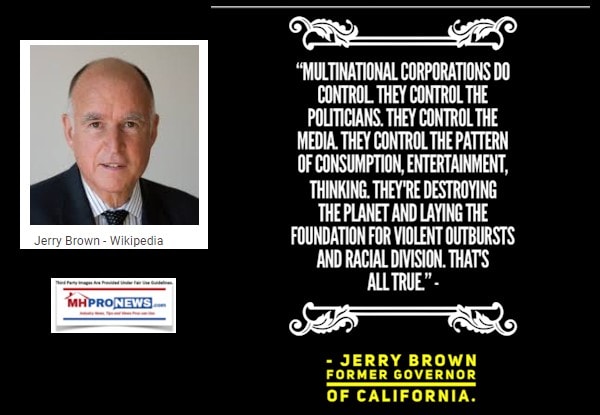
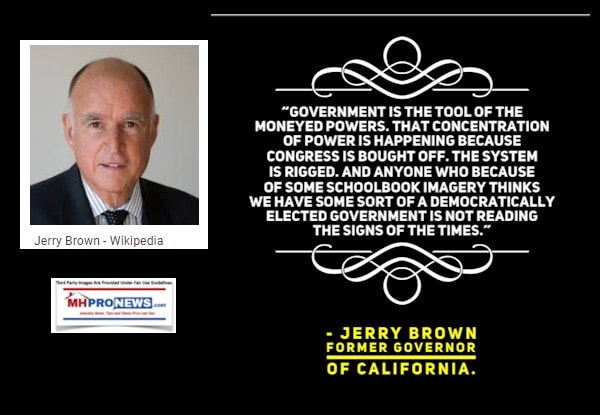

Much of what Brown said fits the research authors Joel Kotkin and Marshall Toplansky entitled “California Feudalism – The Squeeze on the Middle Class.” But their study for the Center for Demographics & Policy at Chapman University, examined and attached in the MHLivingNews report linked below, makes the case that the current structure is creating American feudalism. The problems are not limited to California.
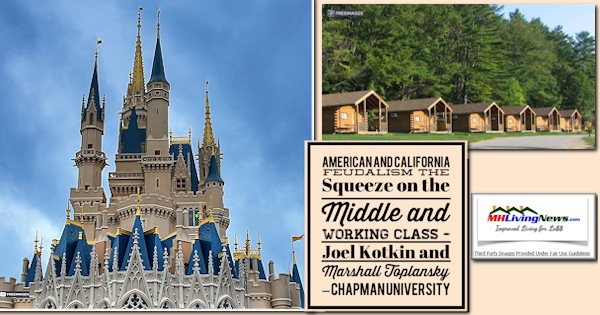
Brown’s, Poverty Inc’s, Kotkin’s and Toplansky’s insights must all be pondered in the light of what Laura Flanders got Warren Buffett’s son Peter Buffett – who with his wife run the Buffett-funded NoVo Foundation – to admit on camera was the troubling phenomenon of philanthro-feudalism.
To paraphrase what Peter Buffett said, numbers of NGO programs that seemingly aim to alleviate poverty instead are simply trapping people in poverty. They fail to achieve the goals for which they set out to accomplish. There may be feel good aspects. They may look good to others. But the reality is darker, as Peter explained.
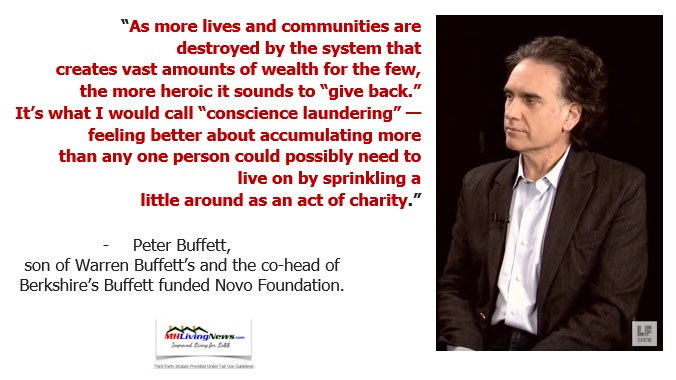
The video interview by Flanders with Peter can be viewed in the report linked below.
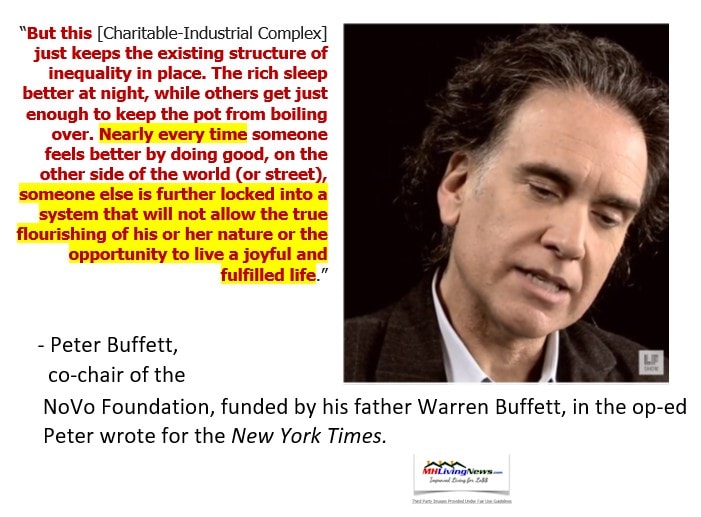
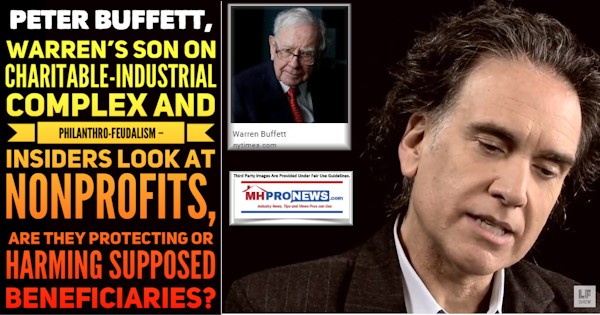
Notice how these various statements and research results form substantial pieces of the mysterious puzzle of poverty and affordable housing fit together?
Speaking of puzzle pieces, quotable quotes from several third party researchers was published here a few years ago that illustrated that the evidence for manufactured housing’s potentially key role in solving the affordable housing crisis is readily available. Which once more begs the question. Why aren’t these same research reports found on the industry’s post-production umbrella trade group?
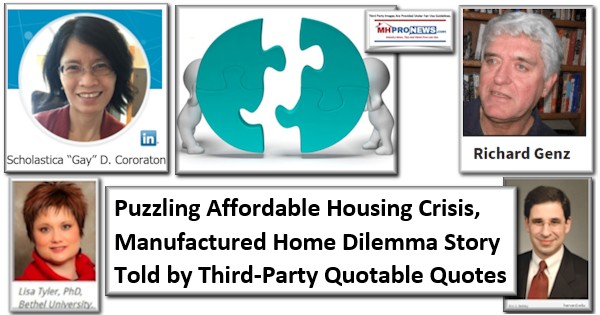
Let’s briefly sum some of this up to illustrate the takeaways and lessons to be learned. In no certain order of importance.
- A lack of affordable housing is costly to our society, which means it is costly to individuals and taxpayers. Those today costs as estimated by NBER researchers cited above are about $2 trillion dollars annually.
- Affordable manufactured homes are widely and unjustly misunderstood. That was the thrust of the doctoral thesis of Lisa Tyler, Ph.D. Manufactured home living, by the way, does not breed crime, which was debunked by researcher William P. McCarty, see that report linked here.
- Beyond those reports and researchers who have already been already cited, the evidence of decades of third-party research reveals that manufactured homes are the most proven form of permanent affordable housing in America. See Dr. Tyler’s and other research as downloads from this link here.
- Affordable manufactured homes are a vital path to economic security. It supports household wealth creation, which also builds character, and can benefit the local tax base, says Tye.
- Affordable manufactured homes can break the cycle of high-rise structures that warehouse people and often lead to numerous problematic issues, not to mention high costs, public housing programs waste, corruption, and abuse.
- More affordable homeownership could over time reduce federal, state, and local budget costs for poverty and housing programs.
- NGOs and government programs may help certain individuals. But overall they do not deliver what they promise. Instead, they maintain poverty – like a business or feudalistic moats to guard the manor – thus the terms, Poverty Inc and philanthro-feudalism.
- Feudalism has been spreading in our society, though it may go under different names, such as wealth inequality.
- A feature of feudalism is exemplified by a castle with a moat. Hold that thought for later.
- While new manufactured home construction is not a panacea, affordable housing preservation – where that is cost effective and makes sense – plus new manufactured homes being made widely available could steadily transform our society into one with more homeowners who are building equity and thus wealth.
- This process of making more affordable housing available locally would over time save taxpayers huge sums of money. It would be good for private businesses, including smaller local businesses. Indeed, properly protected, this process would free private enterprise, could foster local business creation, would create good construction work in indoor production centers that would reduce pollution, is greener, and has less waste than conventional site building can achieve.
- Racial, economic, and social justice causes would flourish in such an environment. Along with more household wealth, more educational opportunities open.
- This relatively brief overview that reflects years of research begs several questions. Why has this obvious interconnected set of pragmatic, evidence-based observations and solutions not been properly fostered?
- The answers to #13 are troubling. But it includes, though is not limited to, the contention of James Schmitz and his colleagues. Namely, that various interest groups have manipulated markets, the regulatory, and legal system. They have thus thwarted these described potentials.
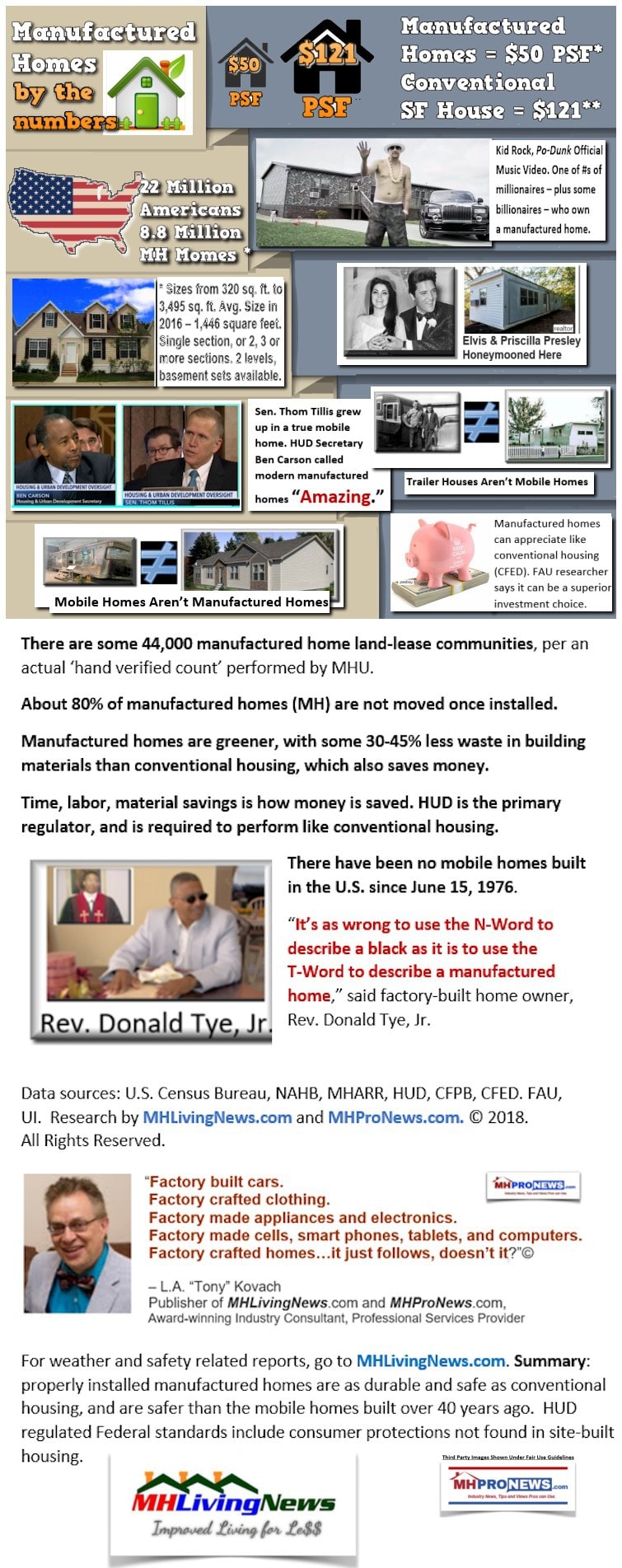
As a lagniappe, while the graphic’s data above merits an update – as all housing prices have risen – the illustration’s percentages largely hold true. More relevant is the point that for years, even millionaires and a few billionaires have had a manufactured home that they call their own. That point defies the stereotypes that have for too long hobbled the industry.
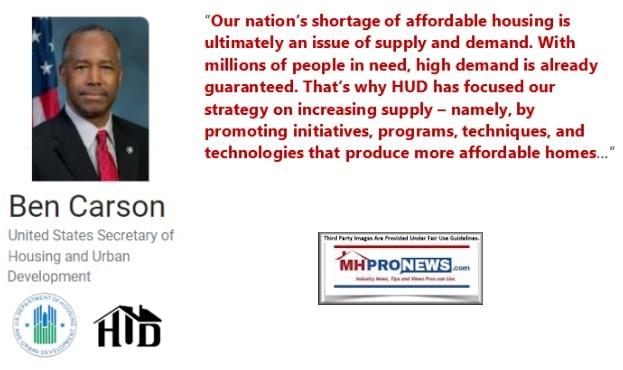
The video interview with realtor Linda Hazelhoff that follows is useful on numerous levels. First, her husband is a customer builder. One might think that she would not be making the case for far less costly manufactured homes. Second, based on years of experience, plus her broad knowledge of housing, Hazelhoff in this under 15 minute interview makes a fine case for what manufactured homes simply make good sense for millions of people. Street and interior scenes of manufactured homes are also shown.
The above sets up a discussion of the spread of American feudalism, and the Warren Buffett mantra of class warfare. Buffett is also the man who has been preaching to his fellow plutocrats and oligarchs the method of slow-motion monopoly or consolidation creation via what he calls the “castle and the moat.”
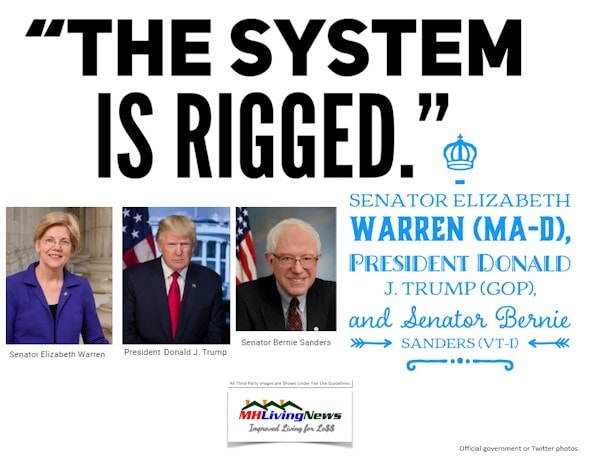
American Feudalism, the Castle and Moat
Once the broad-brush picture is understood, one need not look far to find evidence to support the case for all of the above and what follows. Much of that evidence comes right from the mouth of one Warren Buffett, his billionaire pals like Bill Gates, and his various allies, acolytes, surrogates, and minions.
Paradoxically, it is Buffett who declared more than once that there is class warfare in America. Said Buffett, his rich class is making war. He also said his class has won the war. Let those bold and sobering statements sink in.
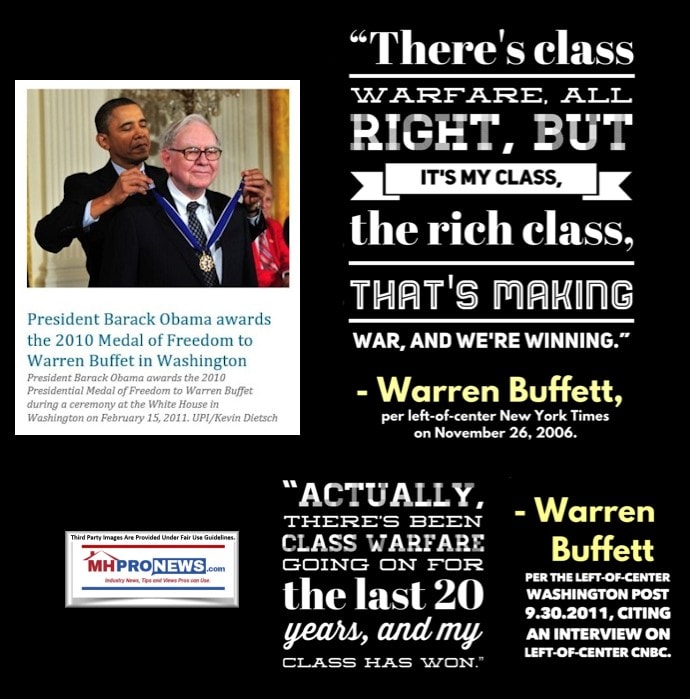
While a decade ago, much of the political donations of bigger businesses went to Republicans, that has since significantly switched. The big money, and much of the smaller donations too, now goes to Democrats. Buffett was ahead of that curve. Buffett helped then Senator Barack Obama (IL-D) become President Obama. Buffett’s grandson served in the Obama White House. When Buffett spoke, the evidence suggests that then President Obama listened. Buffett was given the Presidential Medal of Freedom, the highest honor that a president can bestow on a citizen, by POTUS Obama.
Yet, it was Buffett who made claims while taking steps in business and politics quite at odds with what President Obama supposedly championed.
Buffett was accused of racist and predatory behavior by his Clayton Homes and related lending units. Other evidence suggests that Buffett may harbor darker racist motives too, no pun intended.
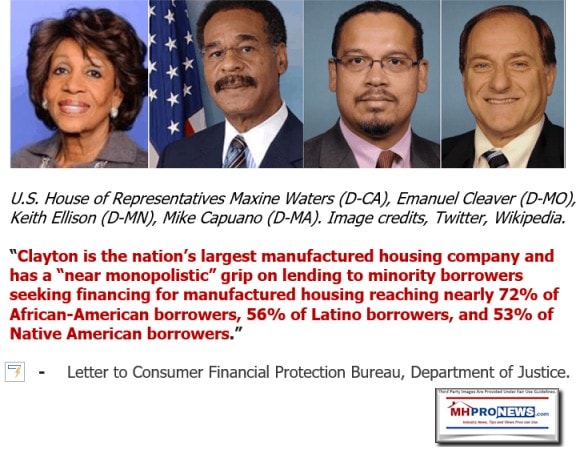
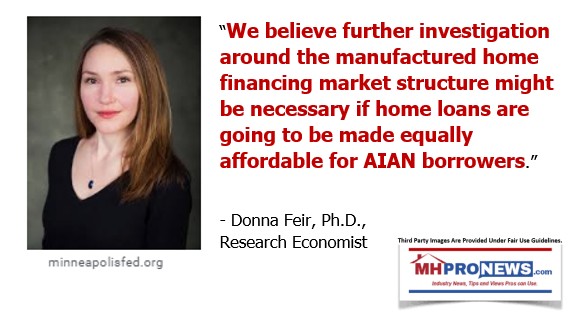
Because if his Warren’s son Peter, Flanders, and Poverty Inc are correct, then the supposed donations to charities are more tools that tax shelter money that foundations that he funds can still deploy in ways that may further his business interests. That holds true for nonprofits like the NoVo Foundation, which Buffett alone funds, as well as the Bill and Melinda Gates Foundation, where Warren, Bill, and Melinda are the trustees.
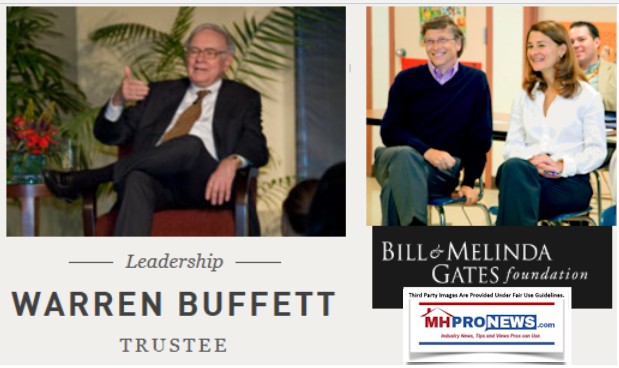
Through foundations and various nonprofits, Buffett, Gates, and their allies have significant influence over public policy and can influence educational and media perceptions too.
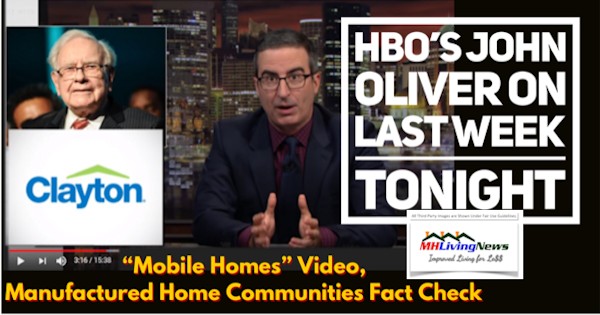
So long as much of mainstream media fails to pull back the veil on just what those seemingly large gifts to nonprofits actually accomplish, it thus manages to burnish their billionaire images as generous philanthropists. It is not unlike – on a smaller scale – what Manufactured Housing Institute (MHI) member and manufactured home community owner Dave Reynolds are purportedly doing with Impact Cares.
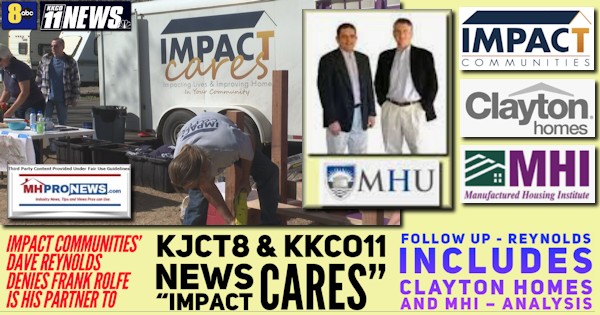
In doing so, this coy pattern may help avoid what fellow billionaire Nick Hanauer said was the threat of pitchforks coming after his fellow oligarchs and plutocrats.

But let’s hone in on elements of Buffett’s seemingly folksy maxims to see how his class warfare has played out in the manufactured housing realm. Let’s see what insights Buffett’s sayings shed light on what Schmitz and company say are sabotage monopoly practices in manufactured housing.
Here is an example of what Buffett has said about the castle and moat.
Keep in mind that Buffett ally Bill Gates said the following about his pal Warren.
Gates claimed that Warren (as opposed to Peter, or other Buffett family members) was finding weaknesses or imperfections in markets, and taking advantage of them in a parasitic manner.
It is not just Gates that made that type of statement. A self-described longtime admirer of Buffett, Robin Harding, said that once he understood how Buffett actually made his money, his view of Buffett dimed. Here is how Harding ties that to the castle and moat scheme that Warren preaches.
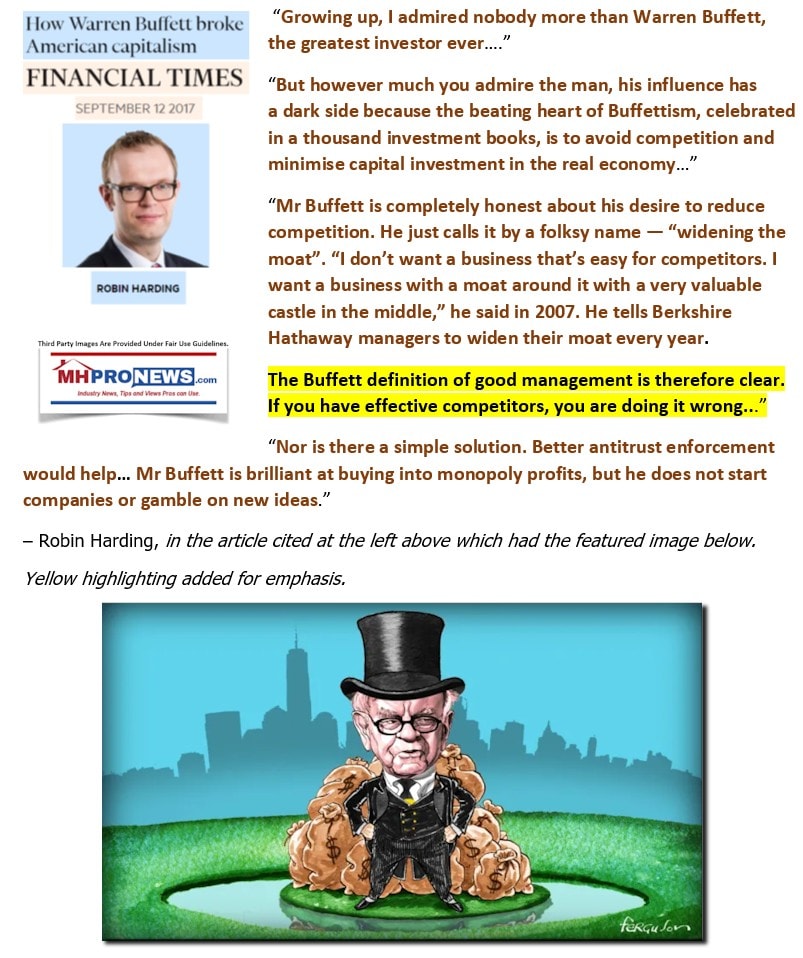
But keep in mind, it is Warren himself who says what it is that he has done and is doing. That should take it completely out of the realm of a ‘conspiracy theory’ or other possible red herring defenses or dodges. Indeed, Kevin Clayton at Clayton Homes cites Buffett on that point several times in a video interview with transcript shown below.
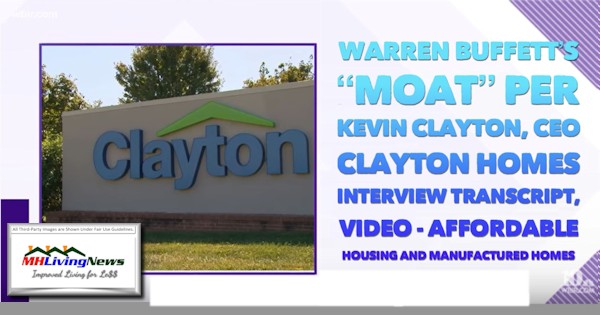
Additionally, Buffett’s unit manager over Clayton Homes, Kevin Clayton said in that video interview linked above that Buffet preaches this method to ‘all’ of his managers at Berkshire. Buffett has stated the same thing.
Buffett-led Berkshire also provides the capital to make building the moat possible. Additionally, by their thwarting access to capital by others who are competitors – which will be examined further below – Buffett and his cronies can slowly choke off those competitors who might otherwise threaten to breach the moat and take his castle through better serving the public – i.e. free market competition.
Note that several of the revelations regarding such issues can only come to light with the passage of time. Time yields the benefit of hindsight or history.
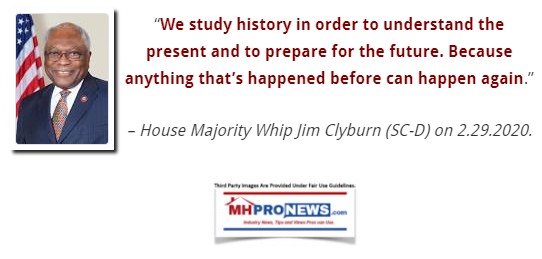
Who makes such a case against Buffett and his methods operating in manufactured housing?
How about Samuel Strommen with Knudson Law. Citing over 110 footnoted references, Strommen explains step-by-step how manufactured housing has been subverted from within. Strommen called it “a Rube Goldberg Machine of Human Suffering” that this ploy has created.
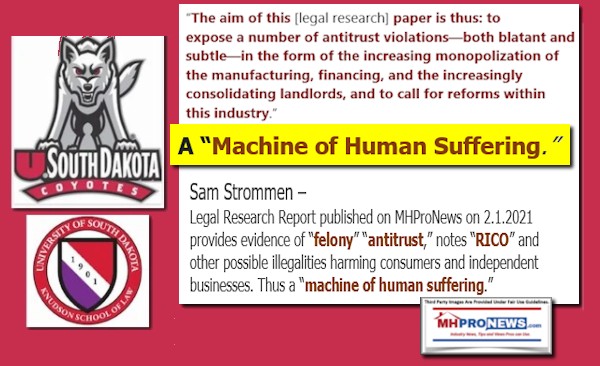
Is Strommen using hyperbole? To answer that, just look at the data from HUD Secretary Marcia Fudge. She says HUD data reveals that homelessness is rising.
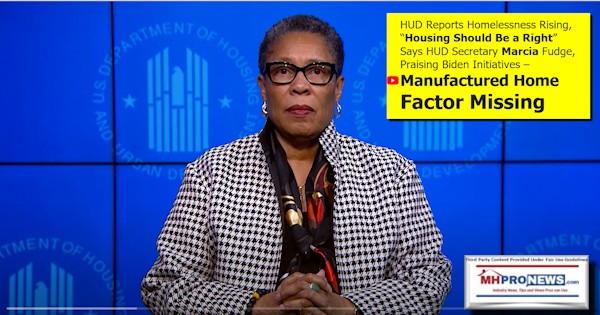
Or consider what Obama-Biden era policies did to manufactured home lending. It reduced lending options. The impact was to benefit Berkshire-owned brands.
Furthermore, it meant that some firms – such as UMH Properties, that prior to Dodd-Frank offered financing – but later felt compelled by regulatory risks to replace company financed sales with rentals. Once UMH adjusted, their profits moved up. But the obvious longer term loser in that change in their business model were affordable housing consumers. Those who previously would have purchased a home with UMH’s financing plan instead ended up often having to rent a manufactured home instead.
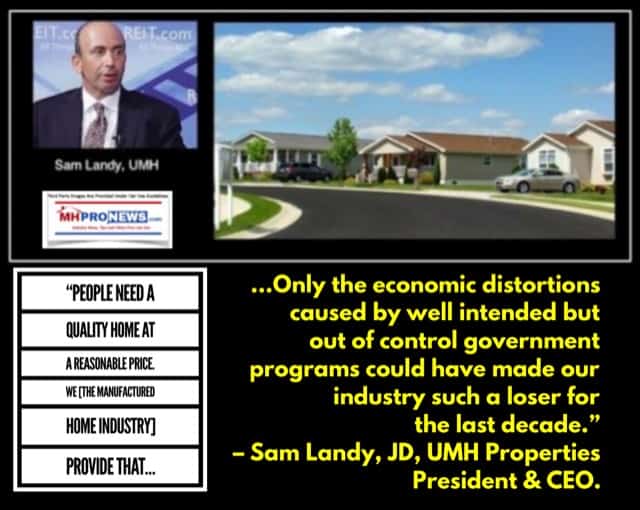
Then, look once more at the chart that shows that home ownership is in decline in the U.S. since the year 2000. Given the above, why is that trend downward a surprise?

Or ponder once more what Tye and Harper said.
By accident or design, these facts fit what Strommen calls a case of “felony” antitrust violations that appears to have examples of RICO violations too. The net results produce what appears to be examples of economic racism.
That economic “class warfare” also happens to harm millions of poor, lower income, and budget conscious whites and seniors too.
Oddly, the Buffett-connected Institute for Policy Studies (IPS) has documented how the billionaire class in America has undermined housing as well as shifted vast sums of wealth in the economy from the working and middle class to Buffett’s and the billionaires’ corporate interests and wealthy class.
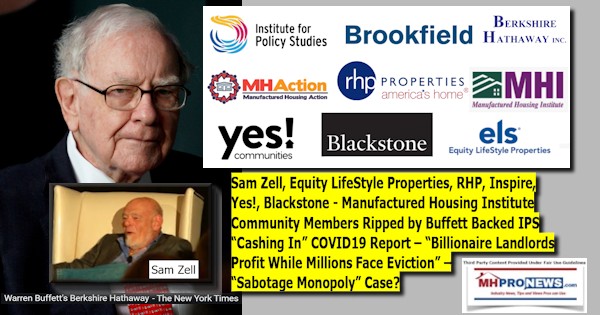
Furthermore, the Berkshire-backed Manufactured Housing Institute (MHI), through an op-ed by their CEO Lesli Gooch, Ph.d., has argued that making more manufactured home ownership available would benefit minorities. The point should be made that on her stated headline principle, MHProNews would concur. But there are catches.
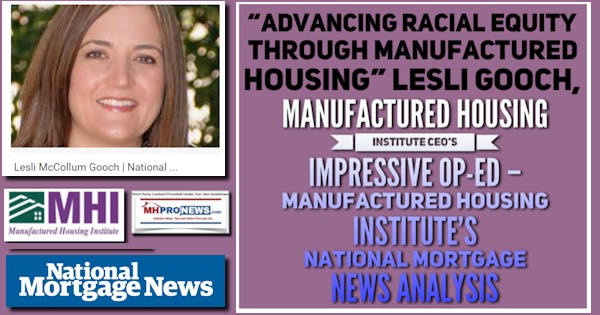
Despite much of the soundness of her rationale, Gooch nevertheless has several problems. So too does Buffett, Kevin Clayton, Clayton Homes, and their associated Berkshire-owned lenders, such as 21st Mortgage Corp and Vanderbilt Mortgage and Finance (VMF). Her report linked above breaks those issues down.
- Briefly, Gooch arguably reveals how they could have been promoting these same ideas in the Trump-Pence Administration.
- Or MHI et al could have done so during the Obama-Biden years.
Restated, what took MHI and their big boy backers so long to figure out what should have been obvious to them decades ago, given their intellectually capable leadership?
Or is what Gooch obliquely revealed rather a case of what Mark Weiss, at the Manufactured Housing Association for Regulatory Reform (MHARR) has called the illusion of motion?
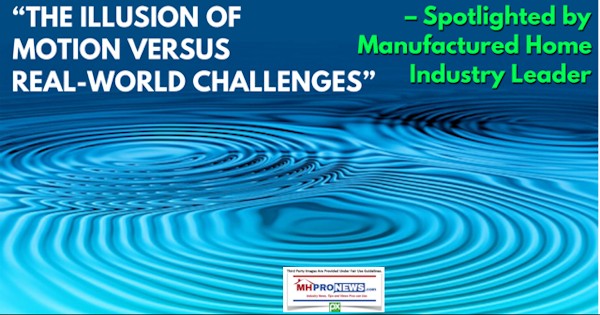
Is what Gooch authored about racial equity an instance of what Marty Lavin, an MHI award winner, said must be kept ever in mind? Namely, to pay more attention to what people do than to what they say. And, of course, follow the money trail. Meaning in this instance, is MHI, Clayton, Buffet and others just posturing good deeds while they are in fact undermining the interests of the vast majority of Americans and smaller business owners?
To illustrate that contention that Gooch, MHI, and their corporate leadership could have made a similar argument to Gooch’s recent one linked here and above, consider the following.
MHLivingNews, in our periodic Inside MH video series, sat down with Donald Tye Jr. This writer and our team did an in depth video interview with Tye. That video made the case some 3 years ago that MHI could have picked up the ball then and run with it, if they had wanted to do so. But neither MHI, nor any of Buffett’s brands, nor their big boy allies at MHI did so. Why not?
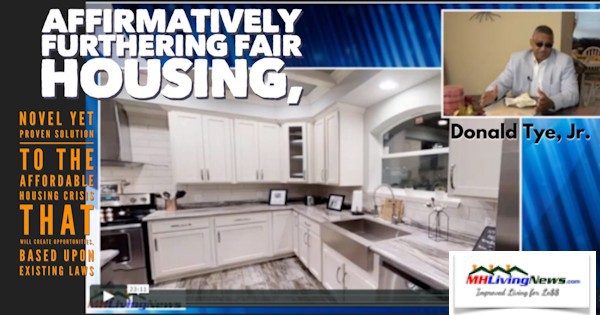
There is more evidence, direct and indirect, that supports those vexing matters that point to posturing without performance.
Representative Maxine Waters (CA-D) and several of her Democratic colleagues made the argument that Clayton Homes and their affiliated lending were predatory and harmful to the interests of minorities and those with a lower income. That quote, shown previously, is shown once more below.
What makes Rep. Waters statement above more interesting is her involvement in several keenly interwoven facts over the course of some years.
I) Waters was part of the Congressional coalition that entered into a widely bipartisan effort to update HUD’s mandate and improved consumer protections provided by modern manufactured homes. Those consumer protections provide safeguards for consumers that industry advocates point out are not commonly found by far more costly conventional housing, such as a dispute resolution process to protect consumer rights.
II) That legislation Waters signed onto was sought by the industry, it was not simply imposed from above. The portion of the law in question is known as the Manufactured Housing Improvement Act of 2000 (MHIA or 2000 Reform Law). That 2000 Reform act was long sought by MHARR. After a change in leadership at MHI, some years before the Berkshire Hathaway era began, resulted in MHI joining with MHARR, the Texas Manufactured Housing Association during the Will Earle tenure there, and which others involved in the industry supported.
III) That 2000 Reform legislation includes what is often referred to in industry circles as “enhanced preemption” for HUD Code manufactured homes. The purpose of enhanced preemption is precisely to overcome artificial local barriers to affordable manufactured homes.
IV) The above point is critical, and merits numerous stars. Because going up to the top lines of this report, what preemption means is this. The law necessary to overcome NIMBYism when it comes to manufactured homes already exists. It is the MHIA, through its “enhanced preemption” mechanism. While regular and longtime readers here may know this, newcomers and others will be stunned to learn that the to power to preempt local zoning and placement barriers when it comes to HUD Code manufactured homes was delegated by Congress by both major parties to HUD. That authority by HUD to preempt local zoning obstacles has been federal law for over 2 decades.
V) Once passed, for a time, MHI and MHARR were working together, along with several state trade level associations and other interested parties, in attempting to get HUD to properly enforce the new and improved standards, safeguards, and federal preemption. More on that further below.
VI) Fast forward to the 2008 housing and financial crisis. As part of the Housing and Economic Recovery Act (HERA) of 2008, a mandate was established for the Government Sponsored Enterprises (GSEs or Enterprises) of Fannie Mae and Freddie Mac to provide competitive financing options for HUD Code manufactured homes. Once more, Rep. Waters and a bipartisan coalition of lawmakers were part of that effort. That provision is known as the Duty to Serve Manufactured Housing, Rural, and Underserved Markets (DTS for short).
VII) However, neither the DTS law nor the MHIA has been properly implemented. Why not? After so many years, how can that be so? Is this perhaps an obvious instance of the Iron Triangle and what Schmitz et al call sabotage monopoly practices? Aren’t these obvious cases of what Strommen called “felony” market manipulations that are antitrust violations by Buffett’s Berkshire backed allies in MHI deploying Castle and Moat tactics? Strommen made the case for ‘yes.’
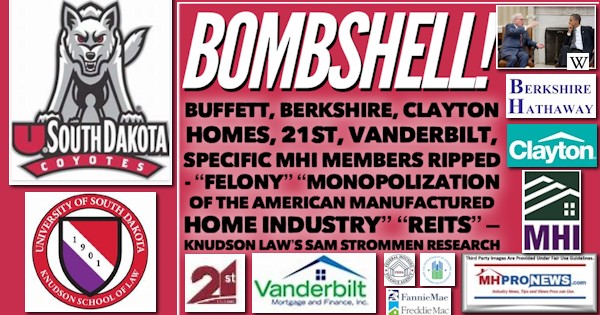
The Great Manufactured Housing Performance and Accountability Debate
For several years, this writer would periodically invite MHI connected leaders into a live public and/or digital public forum in order to debate their performance and effectiveness.
For years, MHI, Clayton, 21st, and their outside counsels declined. They also demurred in addressing the various allegations linked and noted herein. That is their right under the Constitution.
But that also means that they have de facto conceded the claims made against them.
Note that MHLivingNews invited, for example,
- Ronald L. “Ron” Olsen – an attorney who sits on the Board of Berkshire Hathaway to weigh in. Nada.
- Lawrence A Cunningham – a pro-Berkshire attorney and sycophant, also declined to respond.
- MHI leadership, their inside and outside attorneys to respond to the allegations leveled by Knudson Law’s Strommen. Silence.
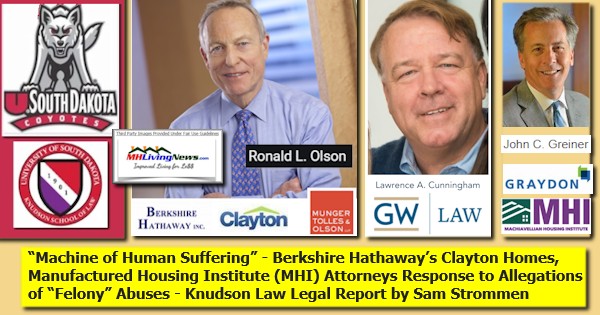
While it is British thinking, there is an old saying that silence betokens or indicates consent.
But there was one MHI member who took up the challenge to seriously debate the performance of MHI and their big boy corporate backers.
That was Andy Gedo, a partner in ManageAmerica. Gedo and his firm are loyal MHI members. He obviously entered the digital exchange via LinkedIn by making thoughtful points in an effort to defend MHI, Clayton, Skyline Champion, Cavco Industries, and others. That virtual debate between Gedo and Kovach is republished via the link under Gedo’s picture and quote below.
Instead of disproving MHProNews’ and others’ concerns and allegations, Gedo ended up making admissions that rationally proved our thesis instead.
Restated, instead of disproving concerns raised by MHProNews and others, or later by Strommen, Gedo ended up having to concede several key points. He did so based upon history and the facts of the issues. One of those admissions by Gedo is below. It happens to shed light on what Kevin Clayton said, mimicking his boss, Warren.
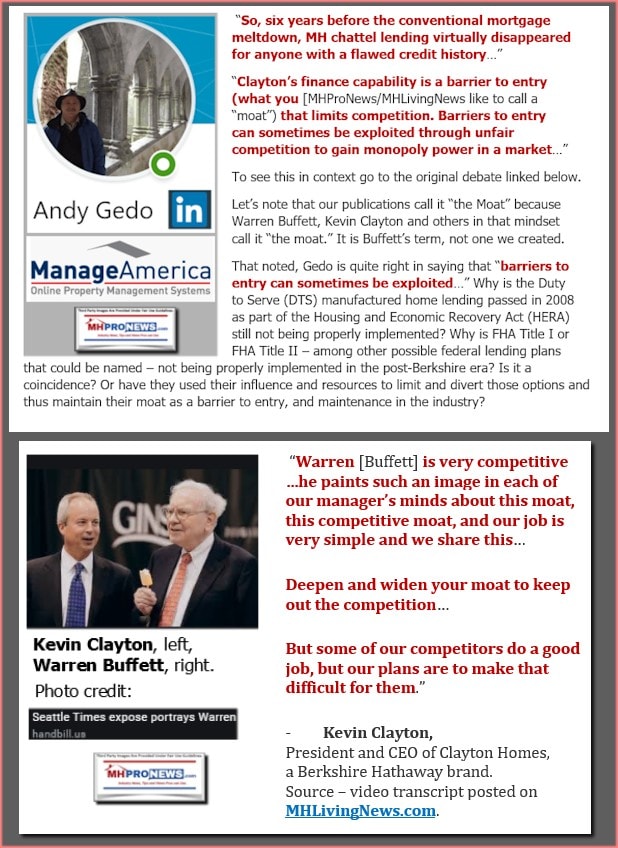
Gedo’s remark referencing barriers of entry also apply to barriers of persistent and exit too.
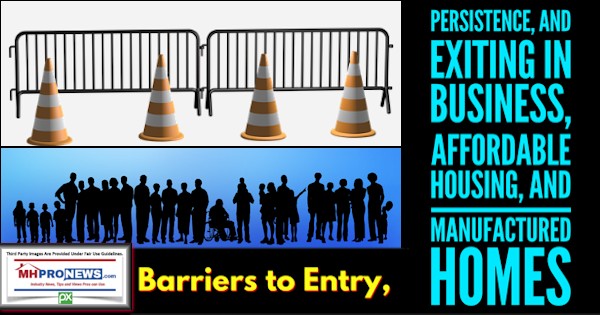
The effect of such barriers and limitations on capital access are many. But among them is this. It reduces the market value of an enterprise.
Low volumes of sales – to the casual observer – may also look like an unattractive industry. Thus that too is a perceptual barrier of entry; one more deadly amphibian in the waters of Buffett’s proverbial moat.
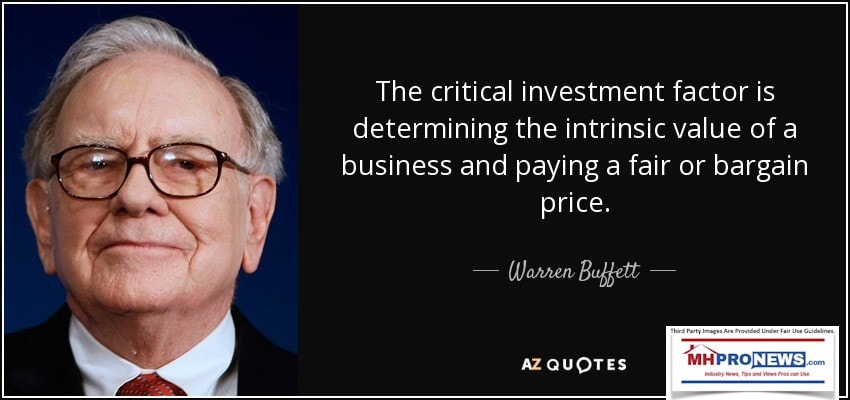
Let’s sum up again for clarity for both newcomers, researchers, and for longtime readers here at the industry-largest and most read trade publication, MHProNews.
A) The case can be made, and has been made, that manufactured homes are the most proven form of affordable housing in America. Years of third-party research make that clear.
B) There are consumer safeguards found in manufactured housing that do not exist to the same degree in any other form of far more costly housing.
C) The common fears about modern manufactured homes have long ago been disproven. Some of those concerns were more valid in the trailer house or mobile home era. But as engineer and MHARR’s first President and CEO, Danny Ghorbani has said, the manufactured home segment of the factory-built home industry has been transformed through evolution, not revolution. What was once true is now in the distant past. While there are old black and white TVs around, when someone talks about a television today, we do not normally think of an old 13 inch black and white TV. We think of a modern flat-screen. That’s the evolution of TV. For our profession, trailer houses became mobile homes, which evolved into manufactured homes that formally began construction on June 15, 1976. Once the MHIA of 2000 took effect, yet another significant era of manufactured home history exits. That’s the evolution of manufactured homes.
D) There are laws on the books, that include, but are not limited to the 2000 Reform law and DTS which make it possible for more affordable home ownership to occur. There is no need to pass new legislation. The laws needed already exist, and simply must be enforced.
E) The claims of: collusion, conflicts of interest, RICO, or “felony” antitrust violations also all have laws that could be enforced to end the subversion of manufactured housing from outside and within.
When one steps back from the decades of experience in massive social programs that include support for far more costly conventional housing, it is arguably a case of repeating the same mistakes year after year that have created and/or fostered the current and problematic status quo.
After decades of experience, it would be madness to continue that same failed pattern.
But perhaps more to the point, why does that problematic pattern exist? Investigators that want to solve a puzzle or a crime have long used the principle of asking the question: cui bono? Who are those benefiting from the status quo? Who benefits from sabotage monopoly in our industry or other professions?
The answers are obvious. It is billionaires like Warren Buffet, Bill Gates, Jeff Bezos, Mark Zuckerberg, George Soros and others. Who makes that claim? Buffett supported IPS! Repeated by MarketWatch and others.
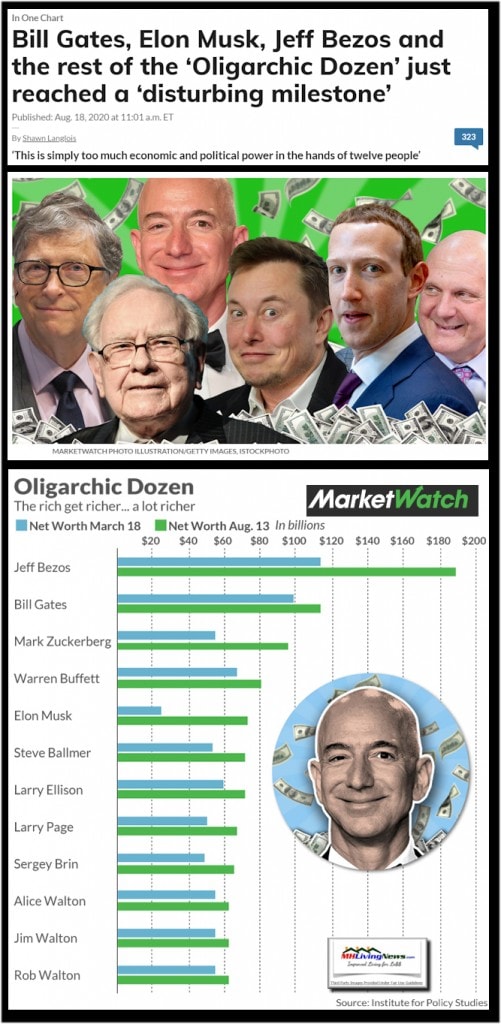
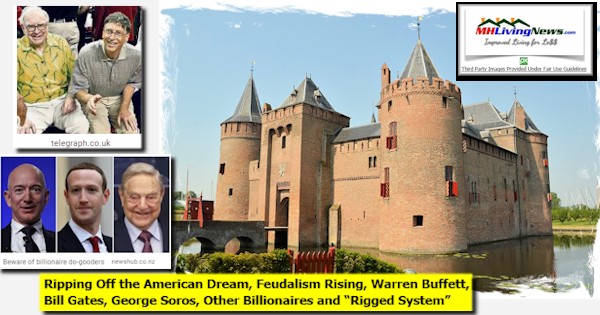
The problems in our country have for too long been a case of pitting this or that group against another. Deep pockets have bought influence with both major parties. The Rev. Donald Tye Jr. told MHProNews that what is occurring is a case of divide and rule.
How Quickly Could Many Social and Economic Problems Related to Affordable Housing Be Solved?
The answer to that question is indicated in the Accessory Dwelling Unit (ADU) legislation what was enacted in California a few years ago. It is summed up in the graphic below. In three years, production roughly tripled. With factory home building of manufactured homes, the same or better could occur.
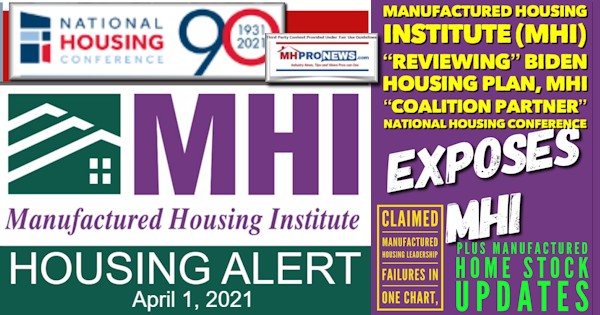
The key to that graphic is the words “preemption” to overcome local NIMBYite barriers to affordable housing. But, as attentive and detail minded readers saw above, manufactured homes have federal “enhanced preemption.” It was passed by widely bipartisan group of lawmakers. Rep. Maxine Waters was one of them.
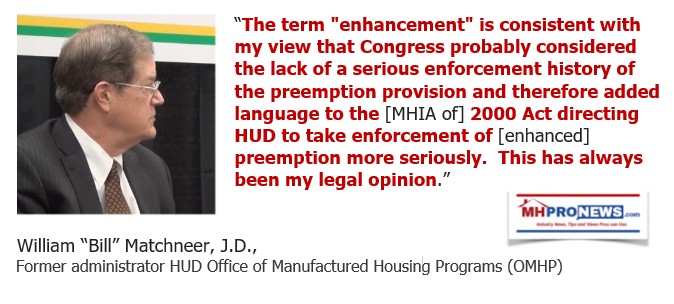
During the Trump Administration, the following report was published. Will Rep. Waters and some of her colleagues step up and and finish the points she began raising some years ago? Time will tell. But she should be asked and an answer sought.
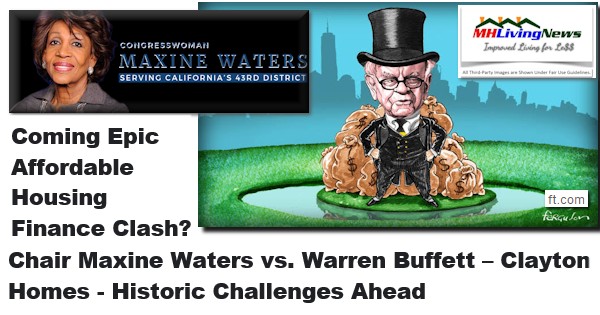
That report linked above tied together several of the points shown herein. Are Rep Waters – who is now the chair of the powerful House Financial Services Committee (FSC) – and her colleagues willing to challenge the status quo? Waters and her colleagues, as the article linked above demonstrates, wanted a then Republican HUD Secretary to enforce the “enhanced preemption” provision of federal law. Will Waters and her colleagues now call on Democratic Secretary Fudge to do the same?
There are several things that are revealed herein and are about to be revealed in the days ahead. MHProNews has already contacted certain lawmakers. More outreaches will be planned. MHProNews has already spoken to state level antitrust officials. They found the arguments compelling, and that was prior to the Strommen report.
A few have enriched themselves by fostering various moats that are spreading feudalism.
Robert F. Kennedy Jr. is a controversial figure in his party, but he is a life-long Democrat. RFK Jr. has sounded the alarm against the spread of feudalism by people like Gates, his allies, and the technocrats. RFK Jr. has also sounded the alarm – concerns shared across the left-right divide – against what has been called by the World Economic Forum the Great Reset.
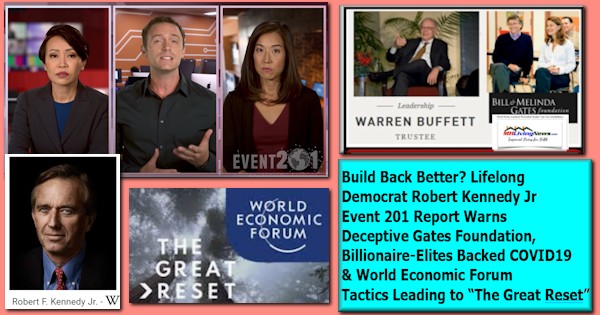
The Great Reset, at its core, would create a new feudalistic society. How so? The WEF’s own video clearly states that the masses of society “will own nothing and be happy.” “You’ll own nothing [and rent everything] and be happy” – says Reuters’ so-called fact check that claims it is ‘false’ or not accurate. That stunning claim by Reuters’ reveals why media is distrusted by so many, because that statement of “will own nothing and be happy” are precisely what the WEF “The Great Reset” video says.
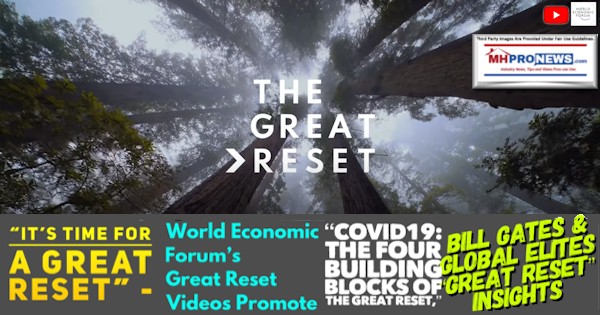
It is not only Kennedy that is sounding the alarms from among Democrats about the threat to freedom, including economic liberty, but also other rights too. Naomi Wolf, journalist turned award winning journalist Glenn Greenwald, Dr. Robert Epstein, and a range of others have sounded alarms too.
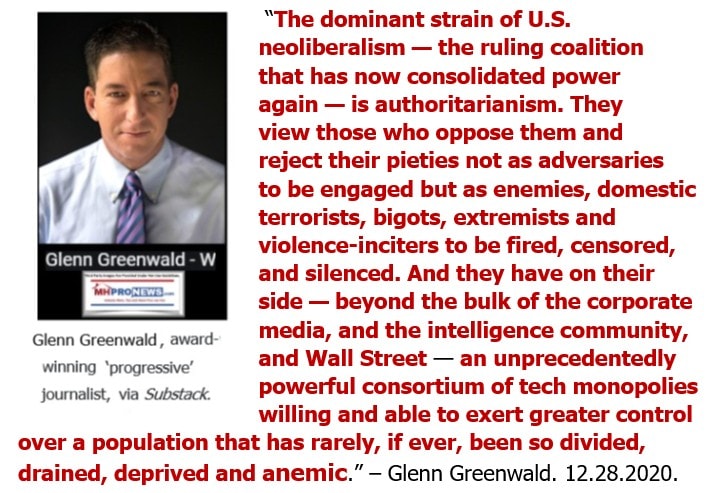
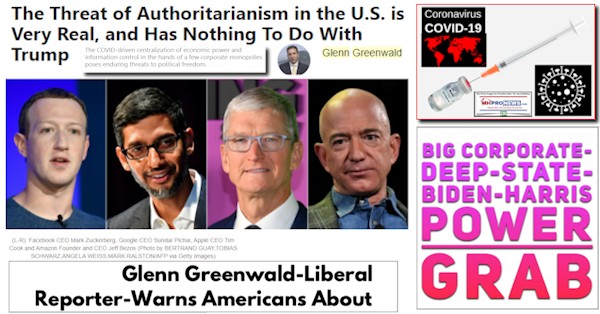
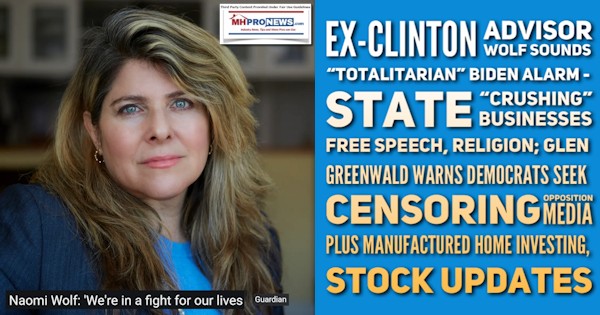
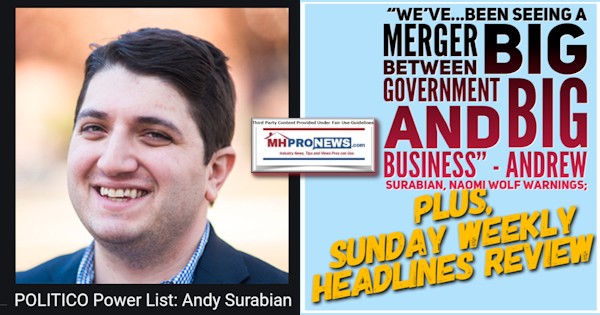
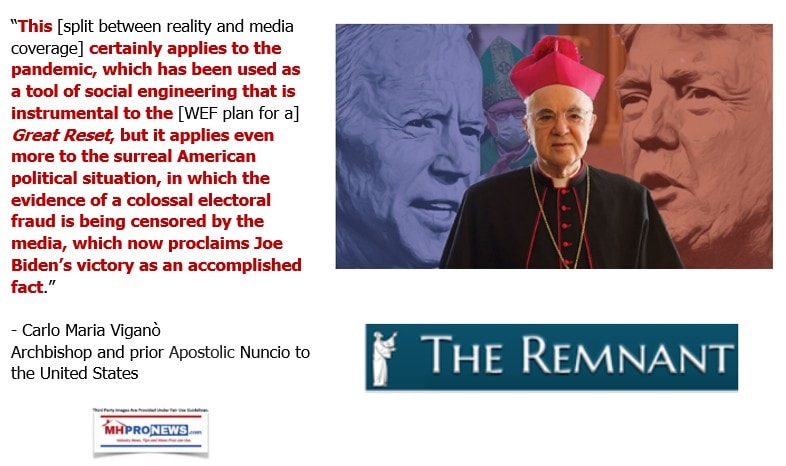
Without meandering too far afield from manufactured housing, but to underscore just how pernicious the reach of the billionaire class is in America and globally today, are the numerous outcries from across the left-right divide over how the mainstream media has been undermined too.
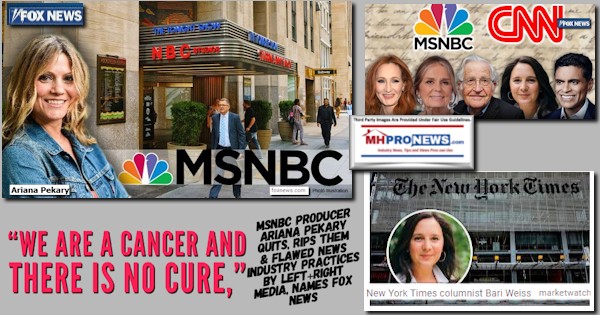
As Kennedy Jr. and others have pointed out, not only is media ownership highly consolidated, but the effect of advertisers on newsrooms decisions are an influence too.
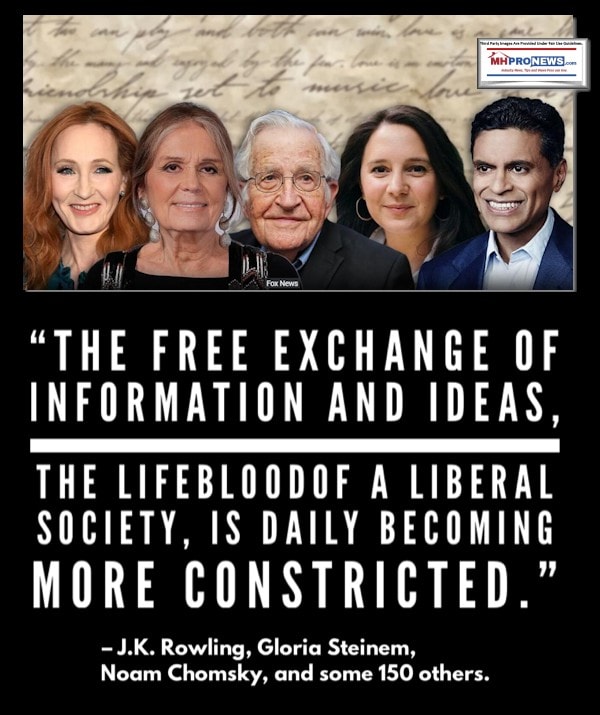
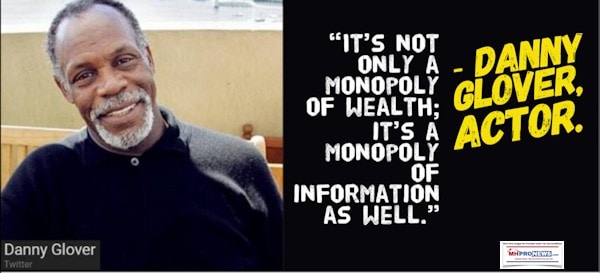
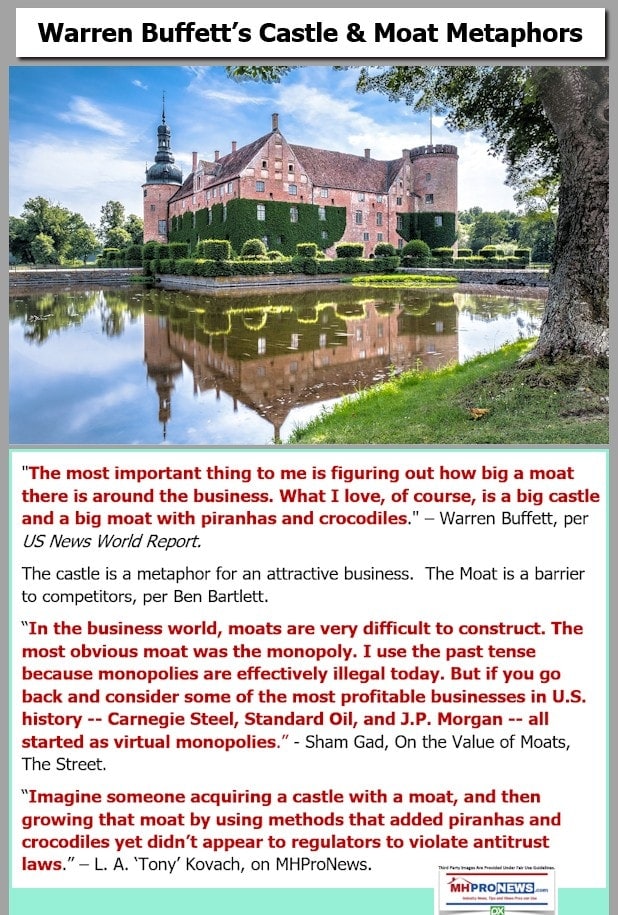
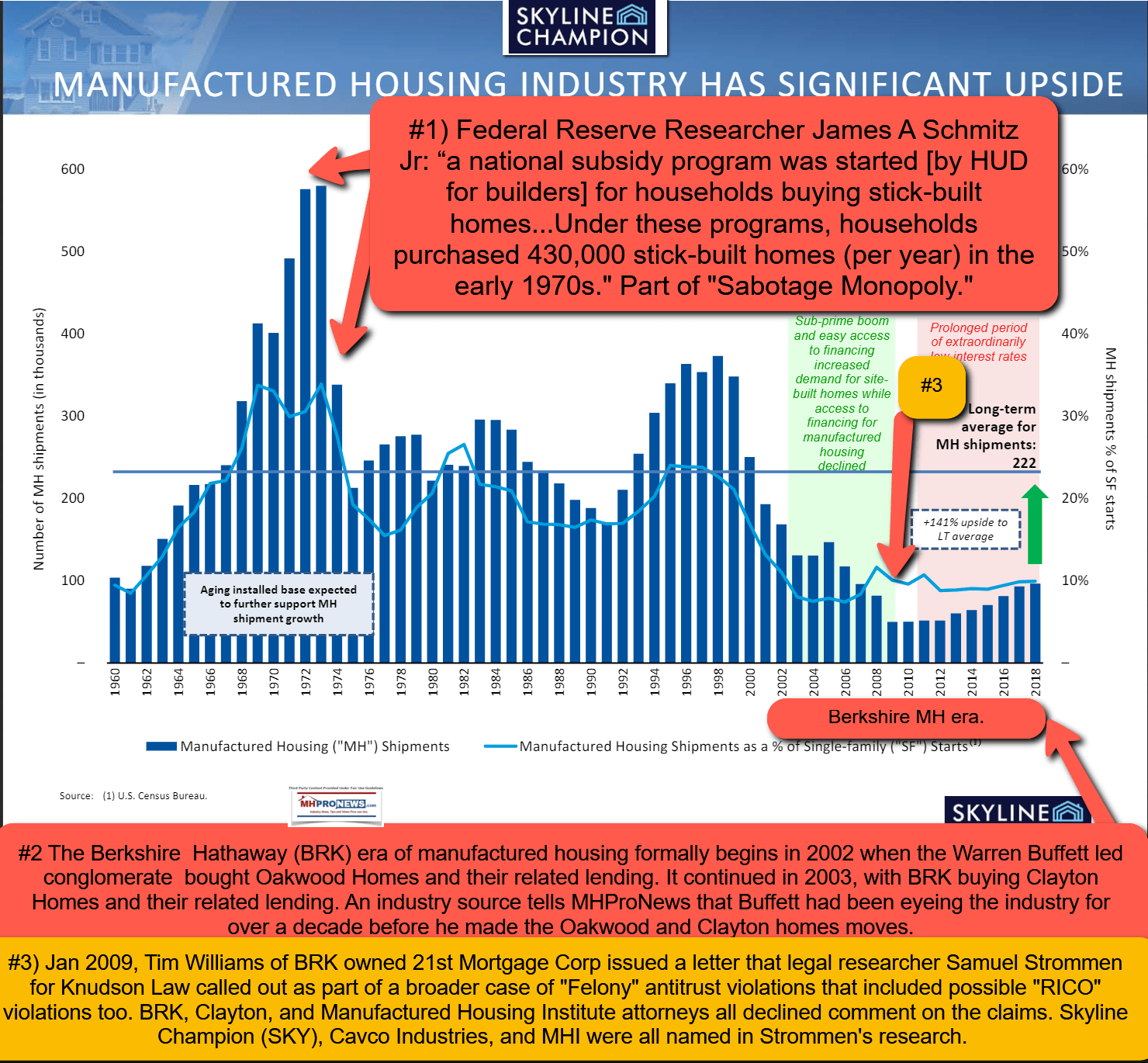
Additionally, to the point of billionaires fostering divisions and their use of nonprofits. Perhaps the most read report on MHProNews last year is the one linked below. It has had some 2 million hits, per third-party Webalizer. In an industry of only 75,000 full time professionals, to have over 10,000 or so hits on any article is significant. To have millions of hits on one report reflects a viral sharing of that information.
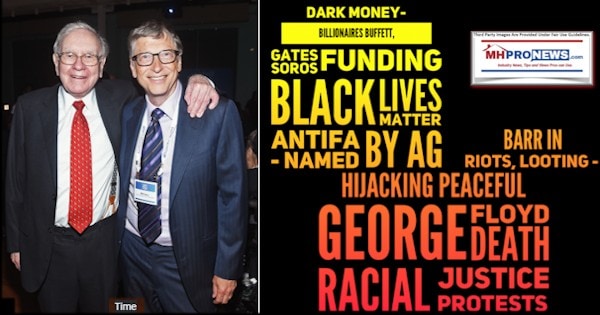
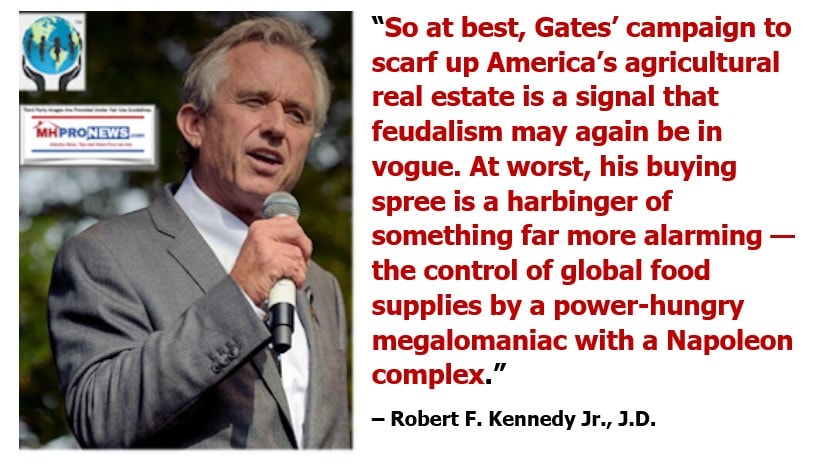
It would be too much to say that all Democrats or all Republicans are corrupt.
But it is not too much to say that too many public officials have failed in their most fundamental duties to their voters.
The time has come to establish the proven path for true economic prosperity. Affordable home ownership. While it merits an investigation as to why HUD Secretary Ben Carson did not order the enforcement by HUD of enhanced preemption himself, his statement below and the quote further above nevertheless sums up neatly and factually why manufactured homes are needed and should be made broadly available.
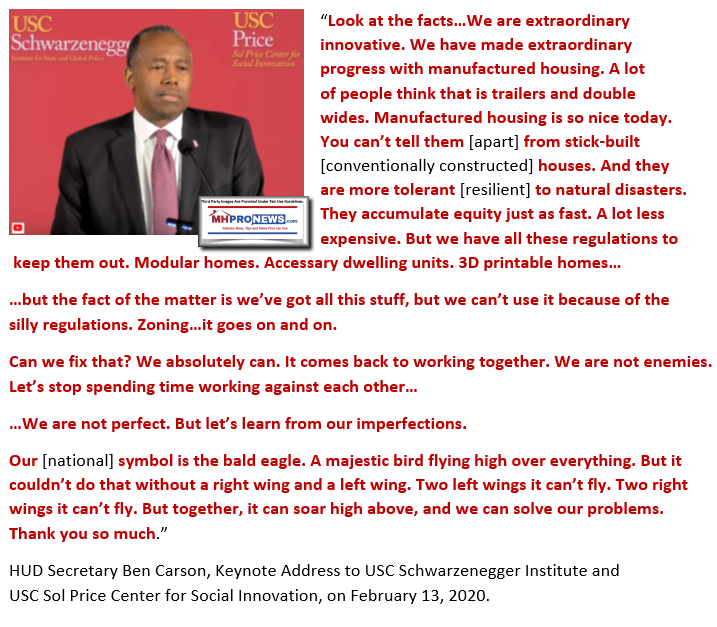
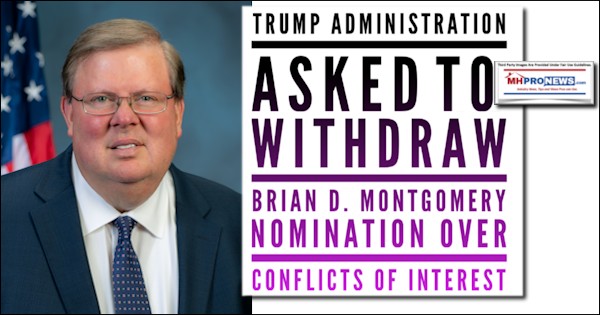
The financing to make widespread affordable homeownership possible must be enforced.
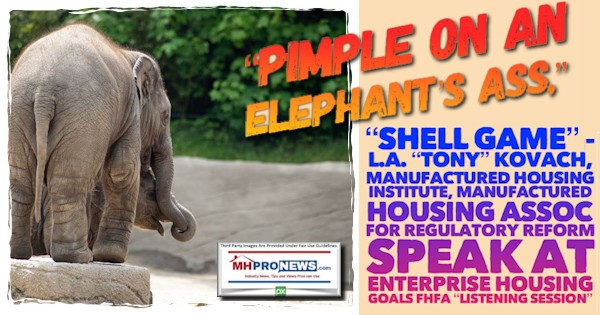
One or more people at the FHFA attempted to thwart the presentation of facts linked above should be one more reason to probe several agencies for possible Iron Triangle/Sabotage monopoly links.
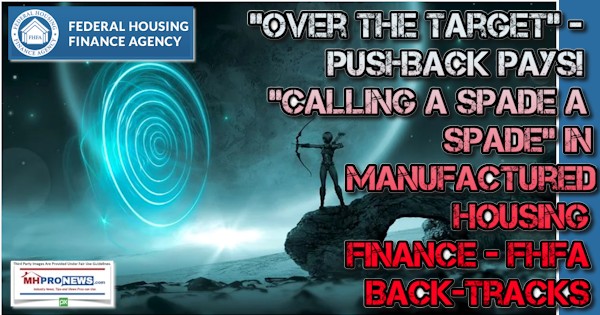
What will lawmakers who can access the power of subpoenas and investigations do?
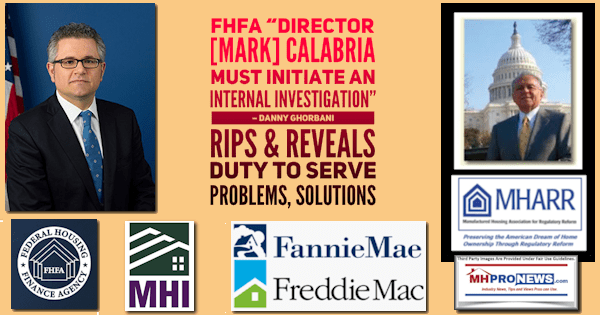
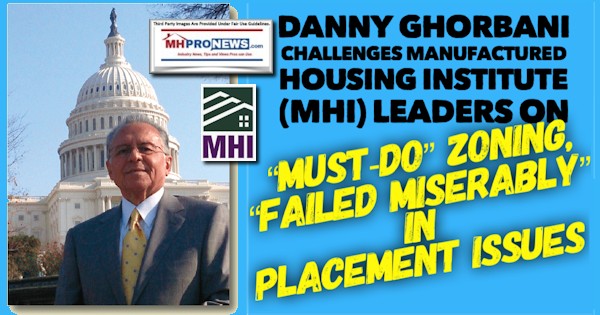
If they and other public officials are serious about ending racial and economic disparities in our society, then good existing laws must be enforced.
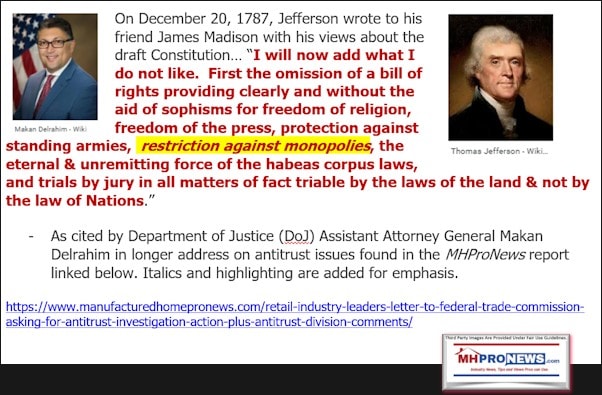
There may be some laws that need fine tuning, but the laws needed to make what this report outlines a reality already exist. People on both sides of the two major party aisle have said that the antitrust laws are not being properly enforced. That sad fact also benefits the consolidators, oligarchs, and plutocrats who have arguably for too long thwarted the interests of smaller businesses and the masses of Americans of all backgrounds.

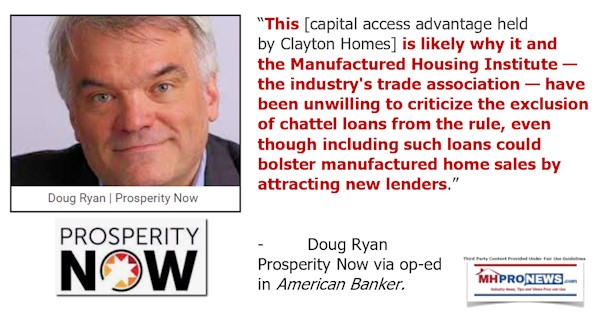
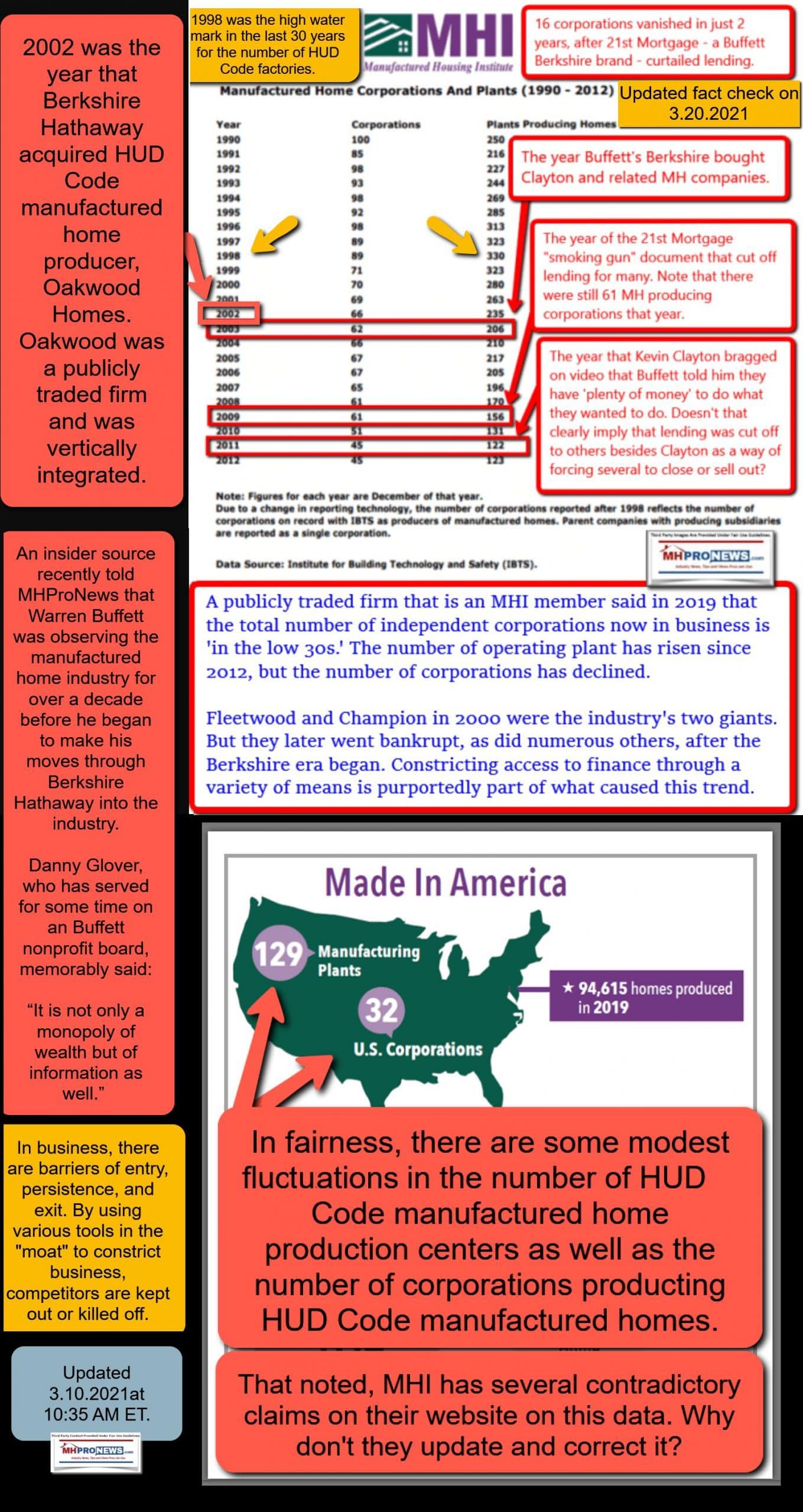
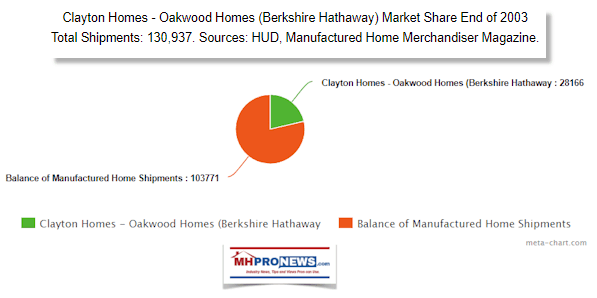
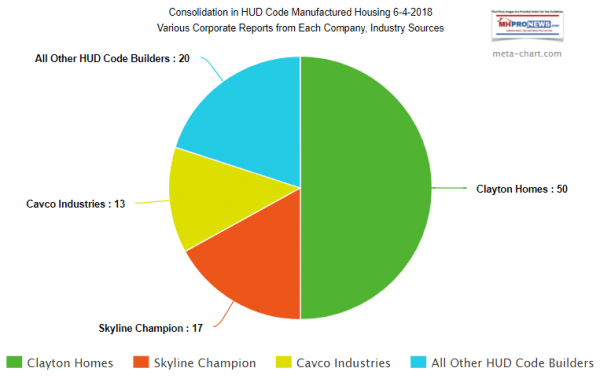
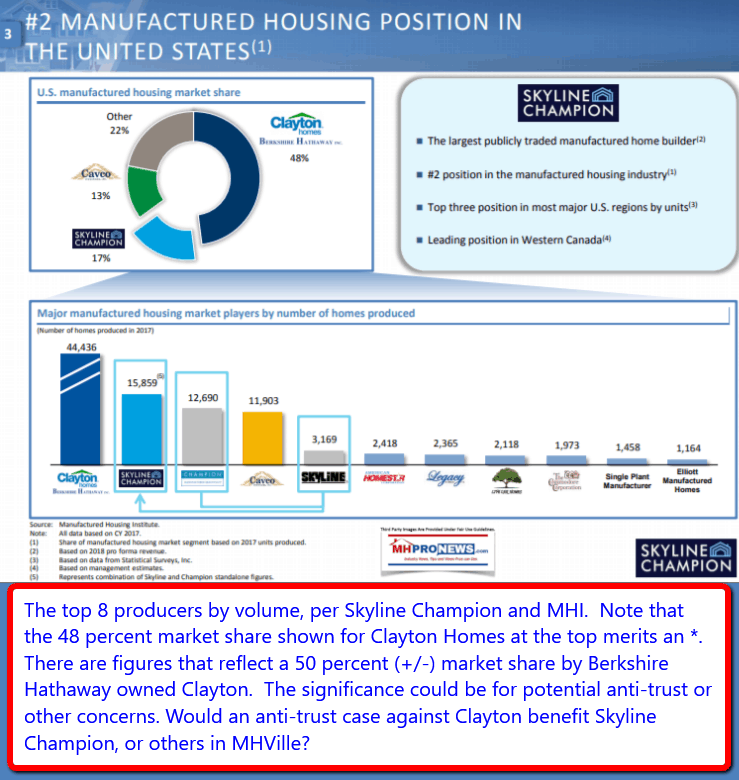
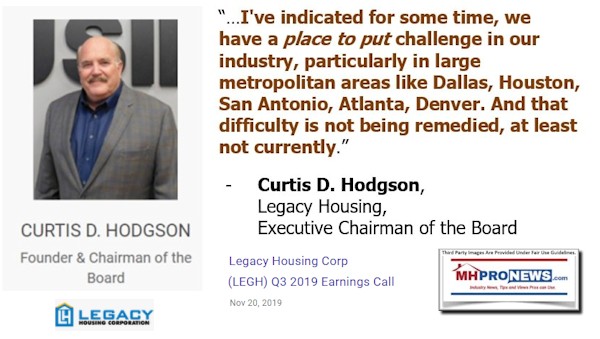
The quotes above and that follow will shed light on all of the above.
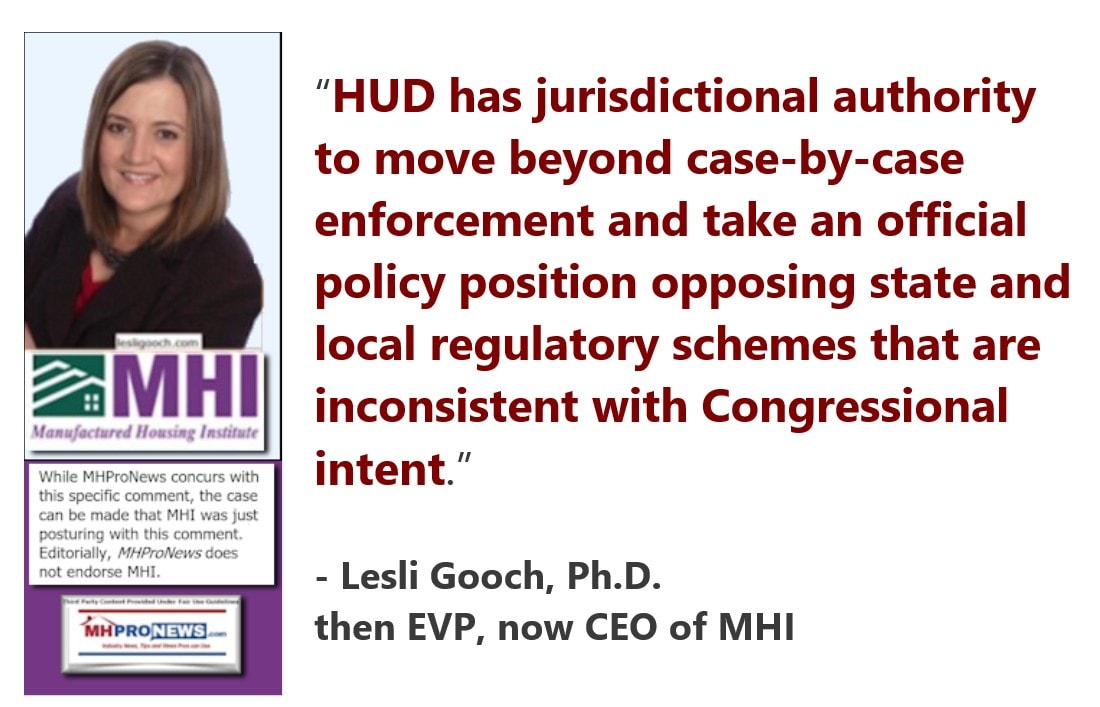
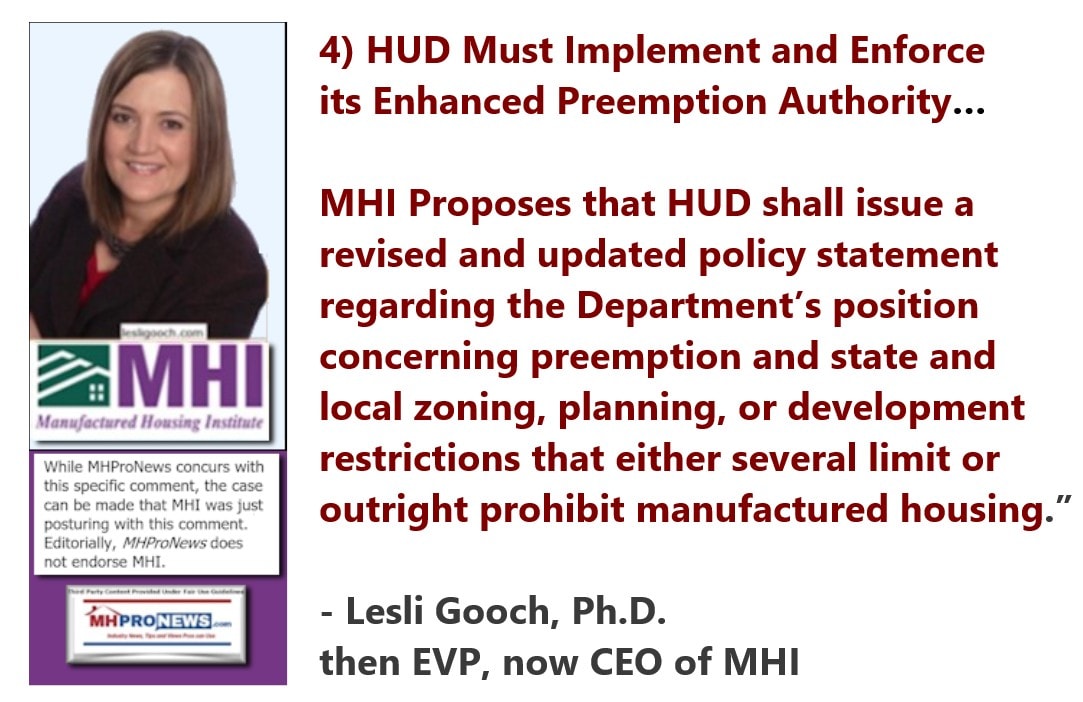

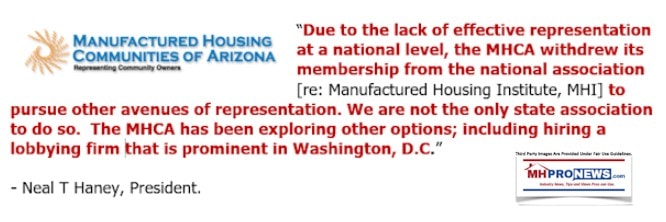
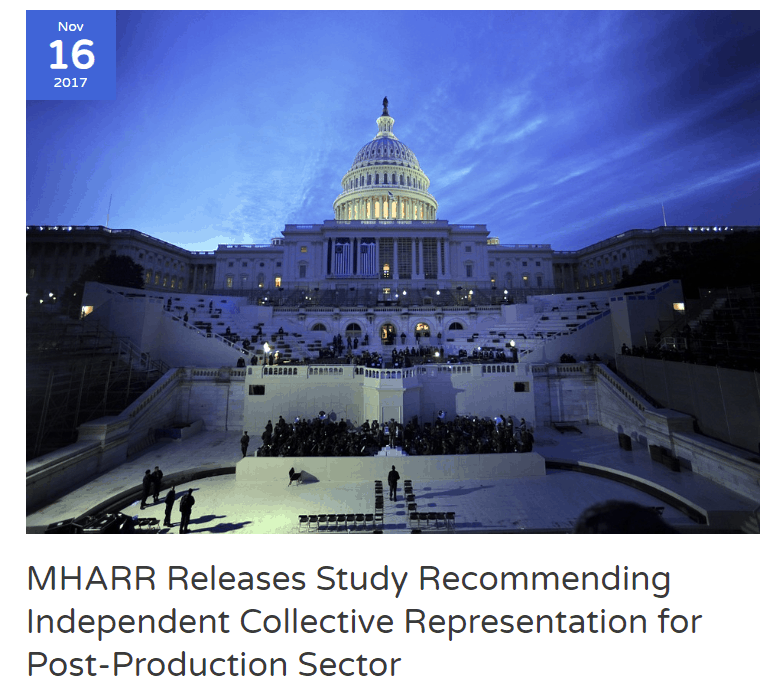
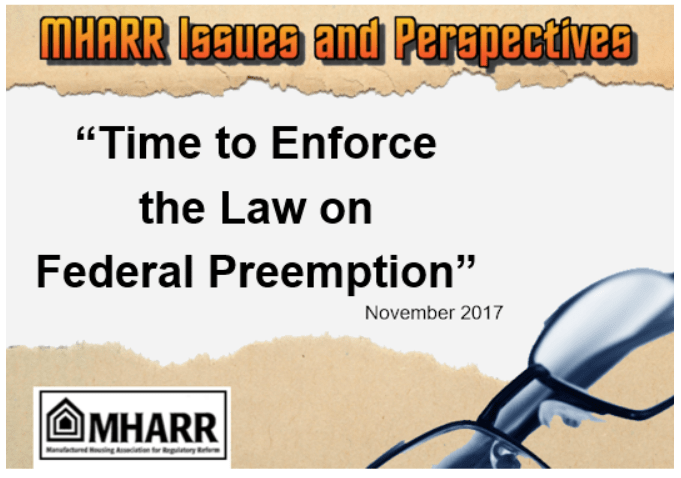
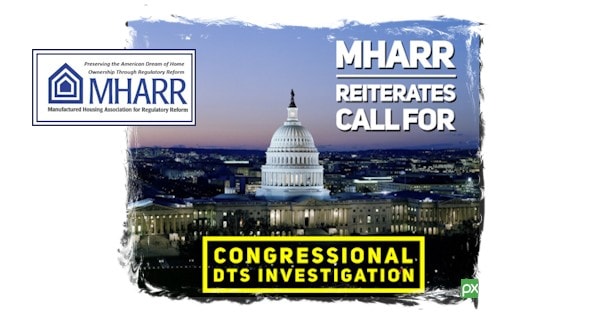
In summary and conclusion…
- The affordable housing crisis can only be solved by having more affordable housing built.
- More affordable housing creates jobs and has other economic and social benefits.
- More affordable home ownership creates household wealth and other benefits.
- More affordable manufactured housing via a free market solution made possible by enforcing existing laws would save taxpayers trillions over time.
- The myths about manufactured homes are readily debunked by known third party research.
- Those who thwart more affordable manufactured home are arguably the moat builders who have manipulated this market and others for their own benefit and to the harm of tens of millions of others.
- The solutions, once the problems are understood, are in principle simple. Understand and educate about the modern realities vs the outdated myths. Enforce good existing laws. Punish those lawfully who have undermined the system.
- To learn more, see the linked and related reports above and below.

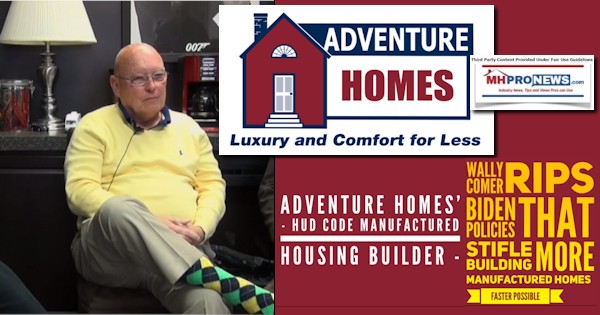
Programming Notice: Our normal business nightly Friday evening market report will be published on Saturday. Watch for it.
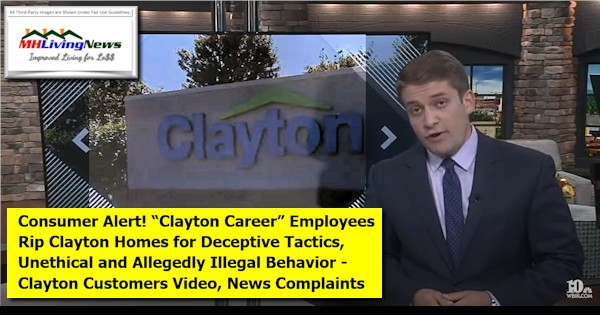
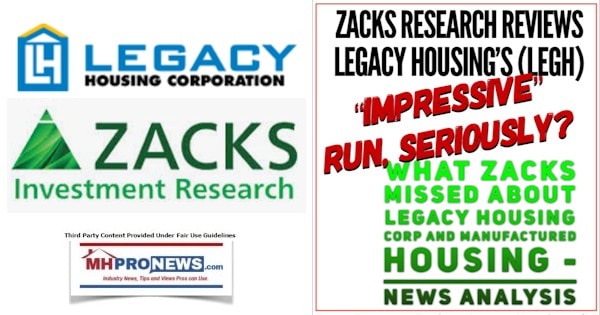


Stay tuned for more of what is ‘behind the curtains’ as well as what is obvious and in-your-face reports. It is all here, at the runaway largest and most-read source for authentic manufactured home “News through the lens of manufactured homes and factory-built housing” © where “We Provide, You Decide.” © ## (Affordable housing, manufactured homes, reports, fact-checks, analysis, and commentary. Third-party images or content are provided under fair use guidelines for media.) (See Related Reports, further below. Text/image boxes often are hot-linked to other reports that can be access by clicking on them.)

By L.A. “Tony” Kovach – for MHProNews.com.
Tony earned a journalism scholarship and earned numerous awards in history and in manufactured housing.
For example, he earned the prestigious Lottinville Award in history from the University of Oklahoma, where he studied history and business management. He’s a managing member and co-founder of LifeStyle Factory Homes, LLC, the parent company to MHProNews, and MHLivingNews.com.
This article reflects the LLC’s and/or the writer’s position, and may or may not reflect the views of sponsors or supporters.
Connect on LinkedIn: http://www.linkedin.com/in/latonykovach
Related References:
The text/image boxes below are linked to other reports, which can be accessed by clicking on them.
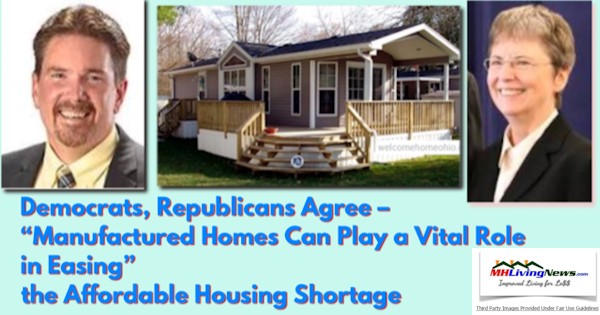
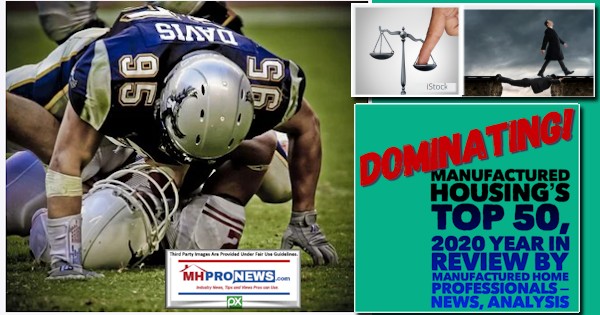

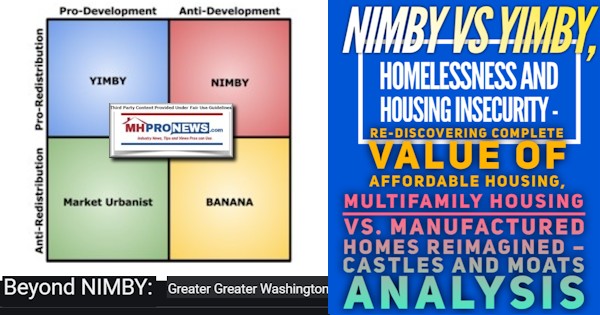


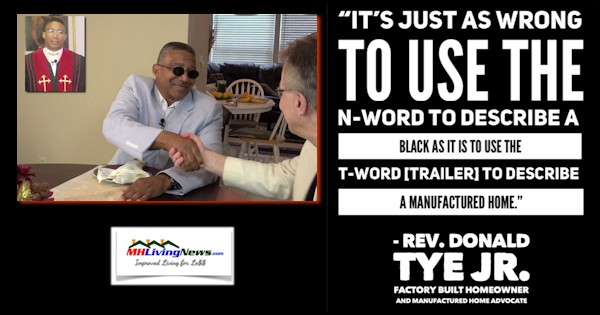
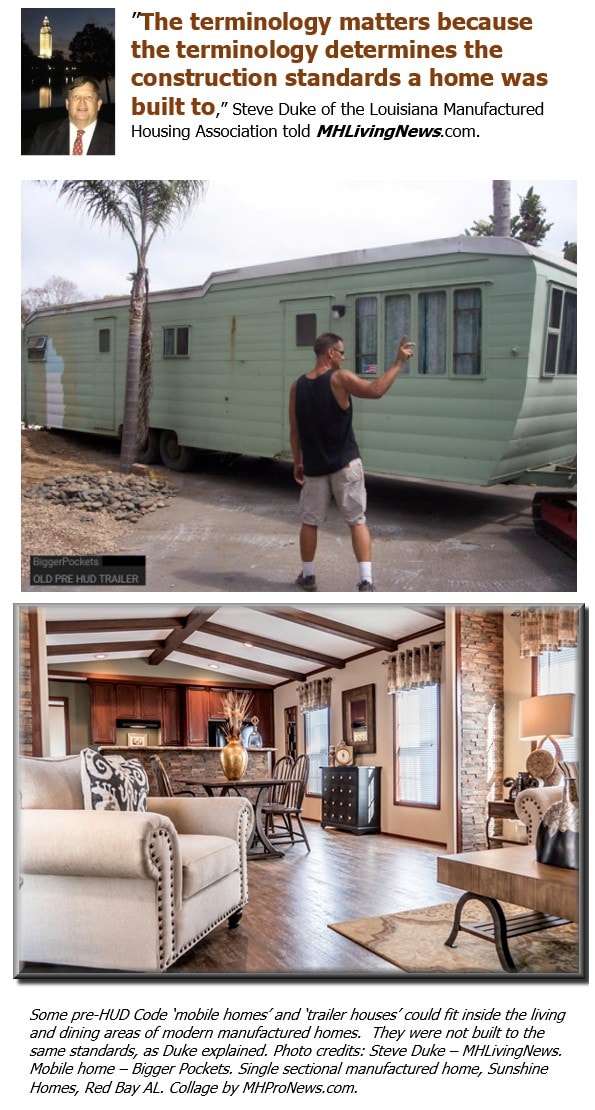
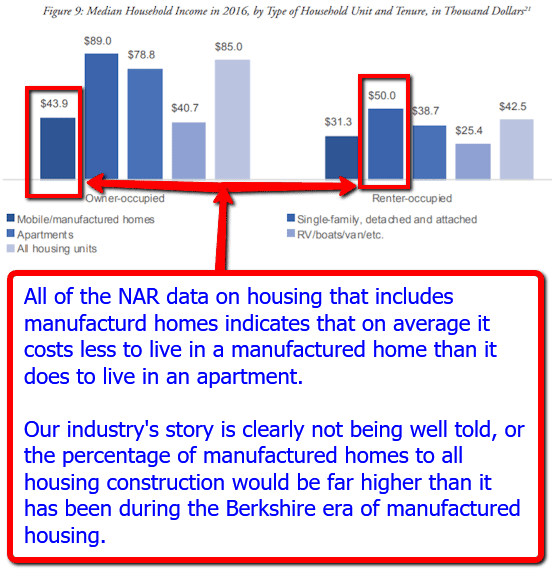
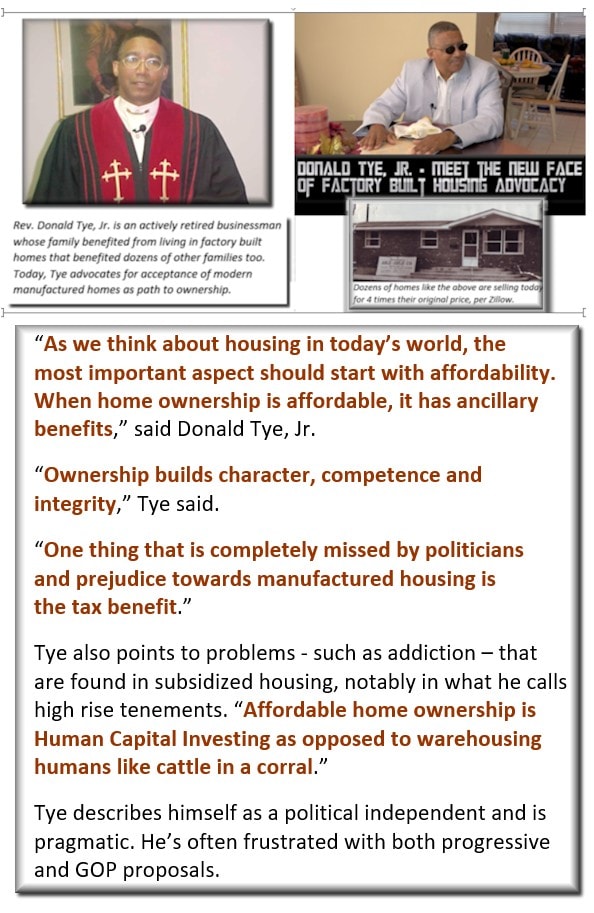
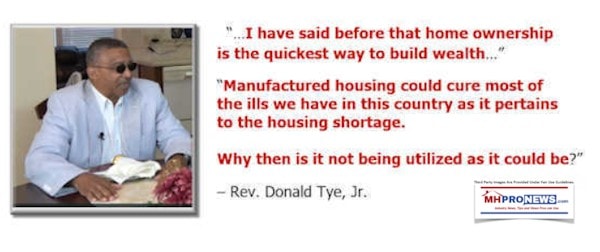
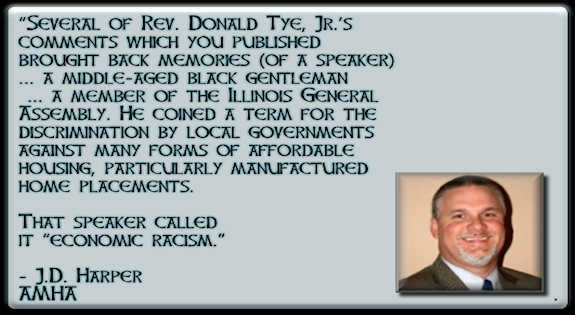
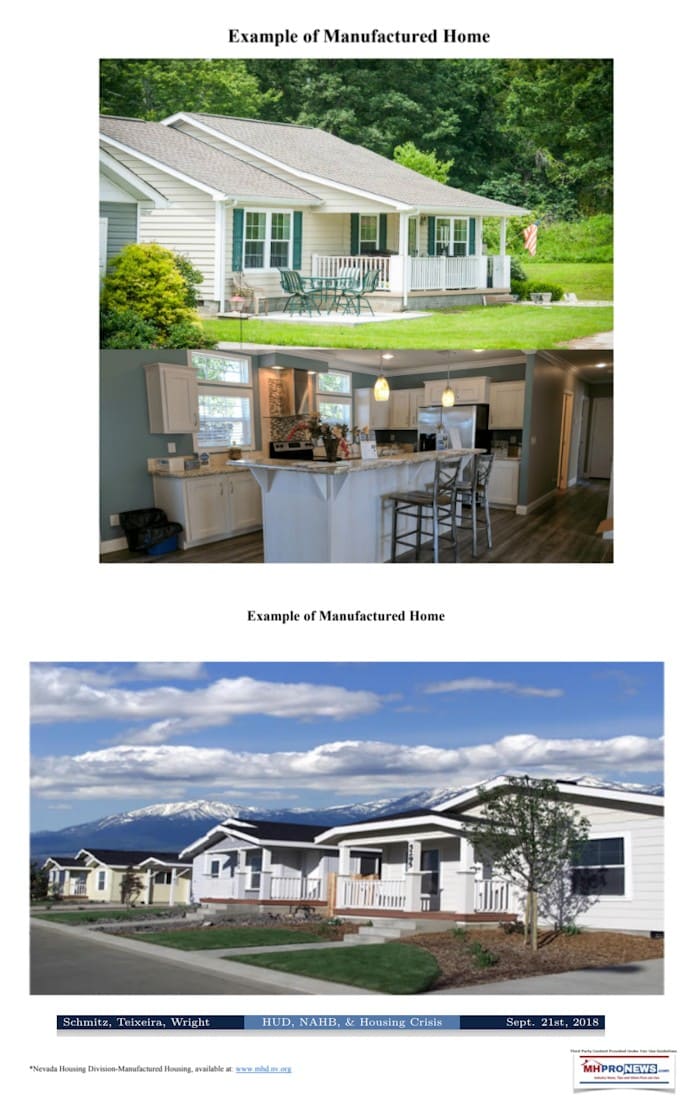
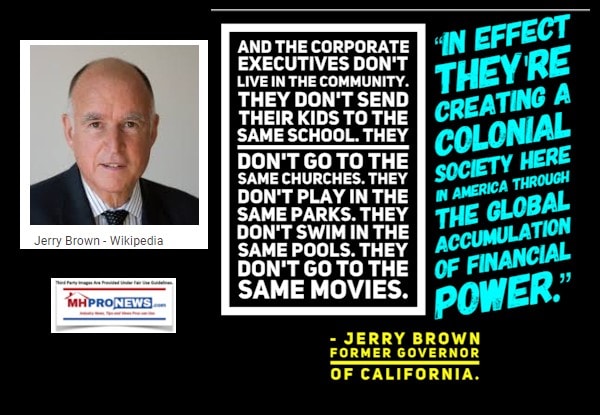

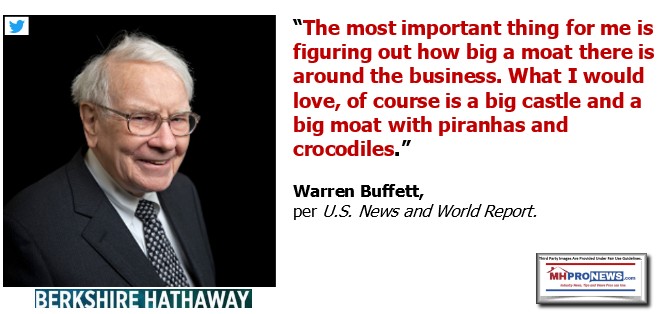
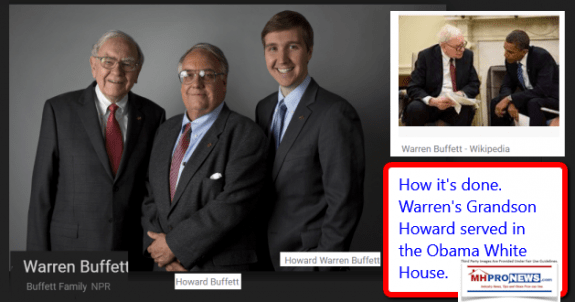
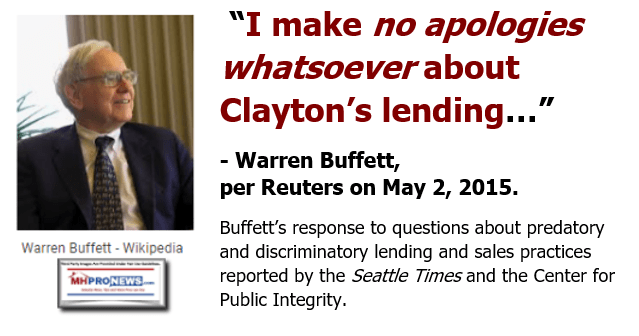


![DidntWantToMeetWarren[Buffett]BecauseGuyBuysSellsFoundImperfectMarketNotValueAddSocietyZeroSumGameParasiticBillGatesPhotoMicrosoftLogoGatesFoundationLogoQuoteQuotableQuoteMHproNews](http://www.manufacturedhomepronews.com/wp-content/uploads/2020/07/DidntWantToMeetWarrenBuffettBecauseGuyBuysSellsFoundImperfectMarketNotValueAddSocietyZeroSumGameParasiticBillGatesPhotoMicrosoftLogoGatesFoundationLogoQuoteQuotableQuoteMHproNews.jpg)

